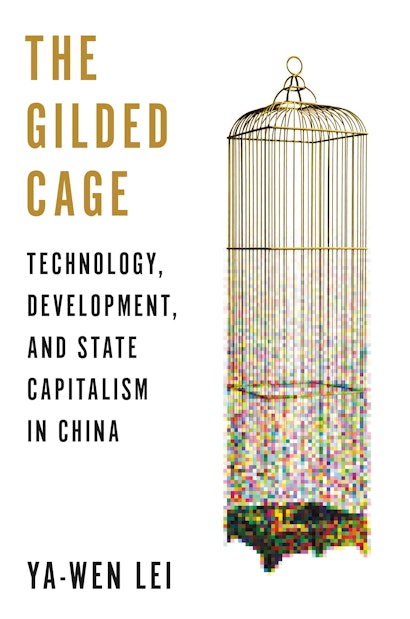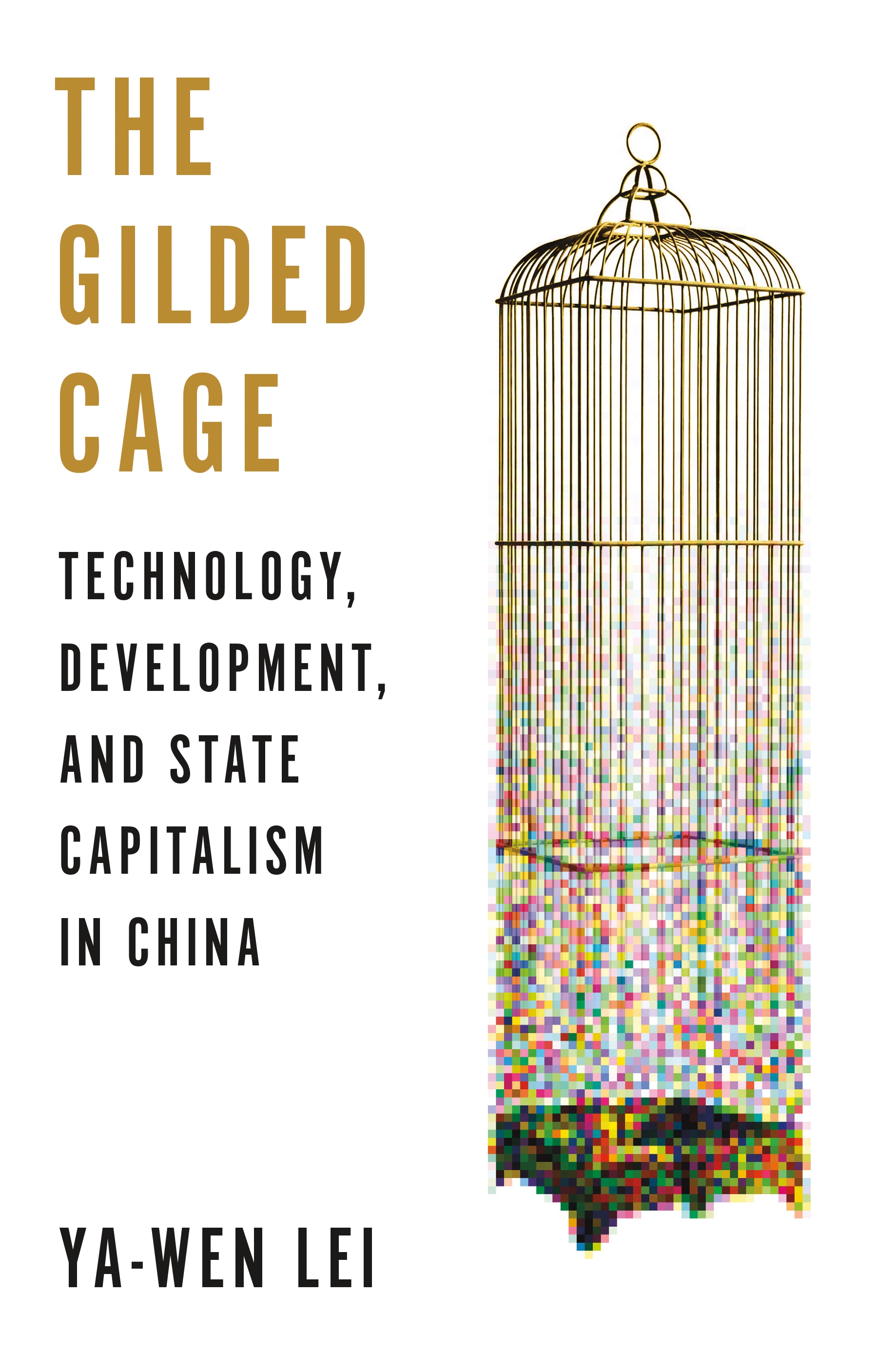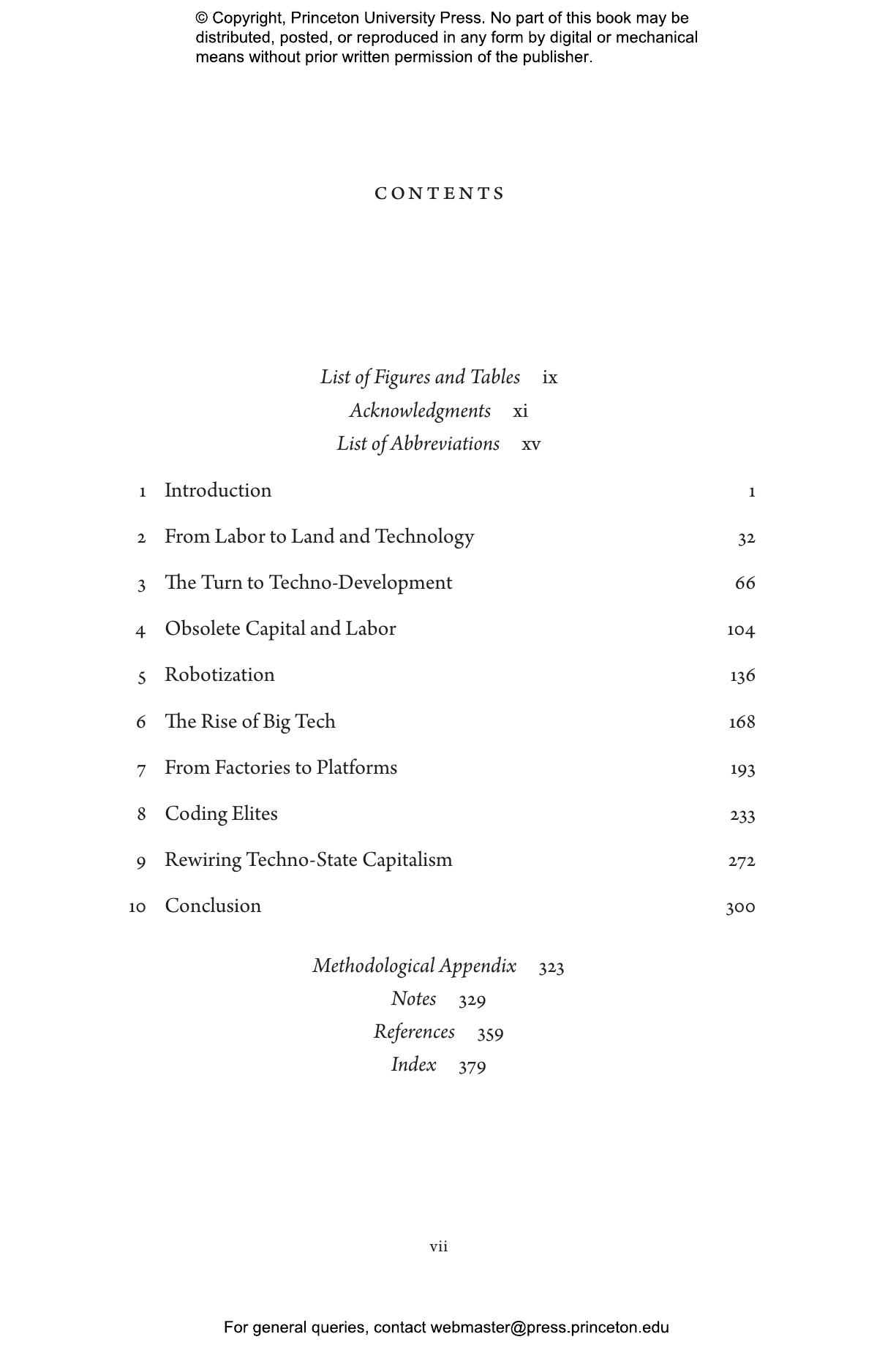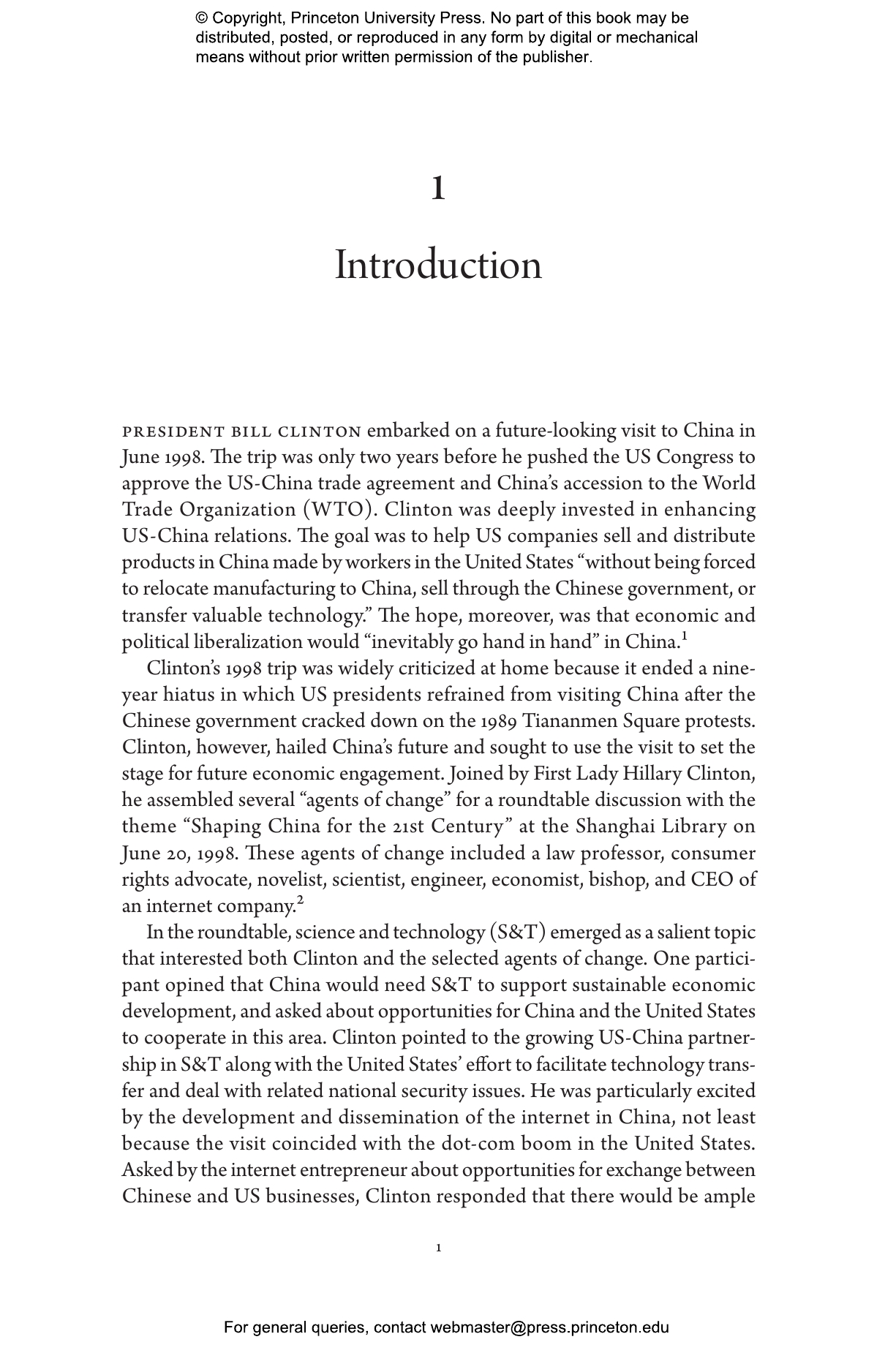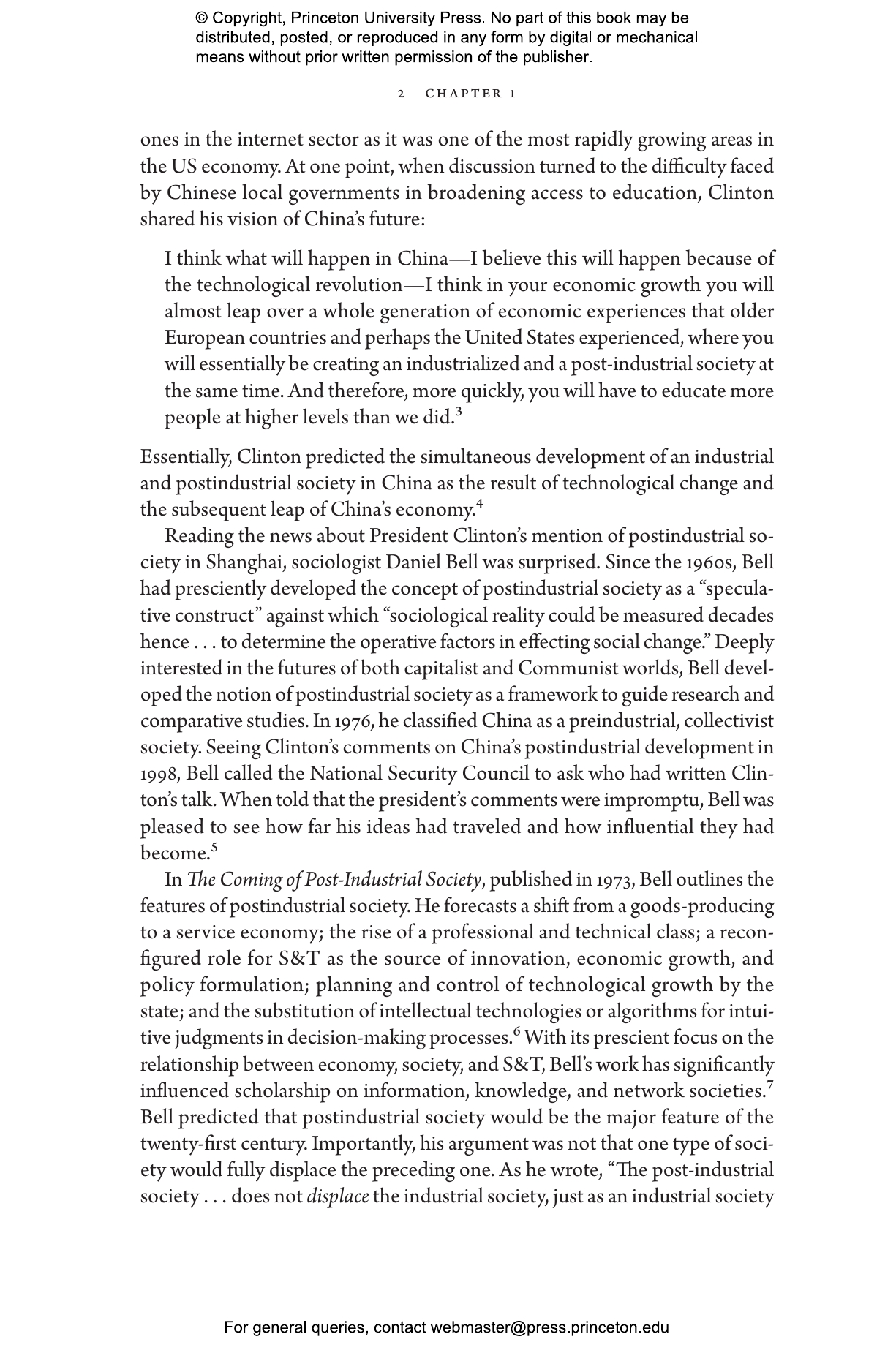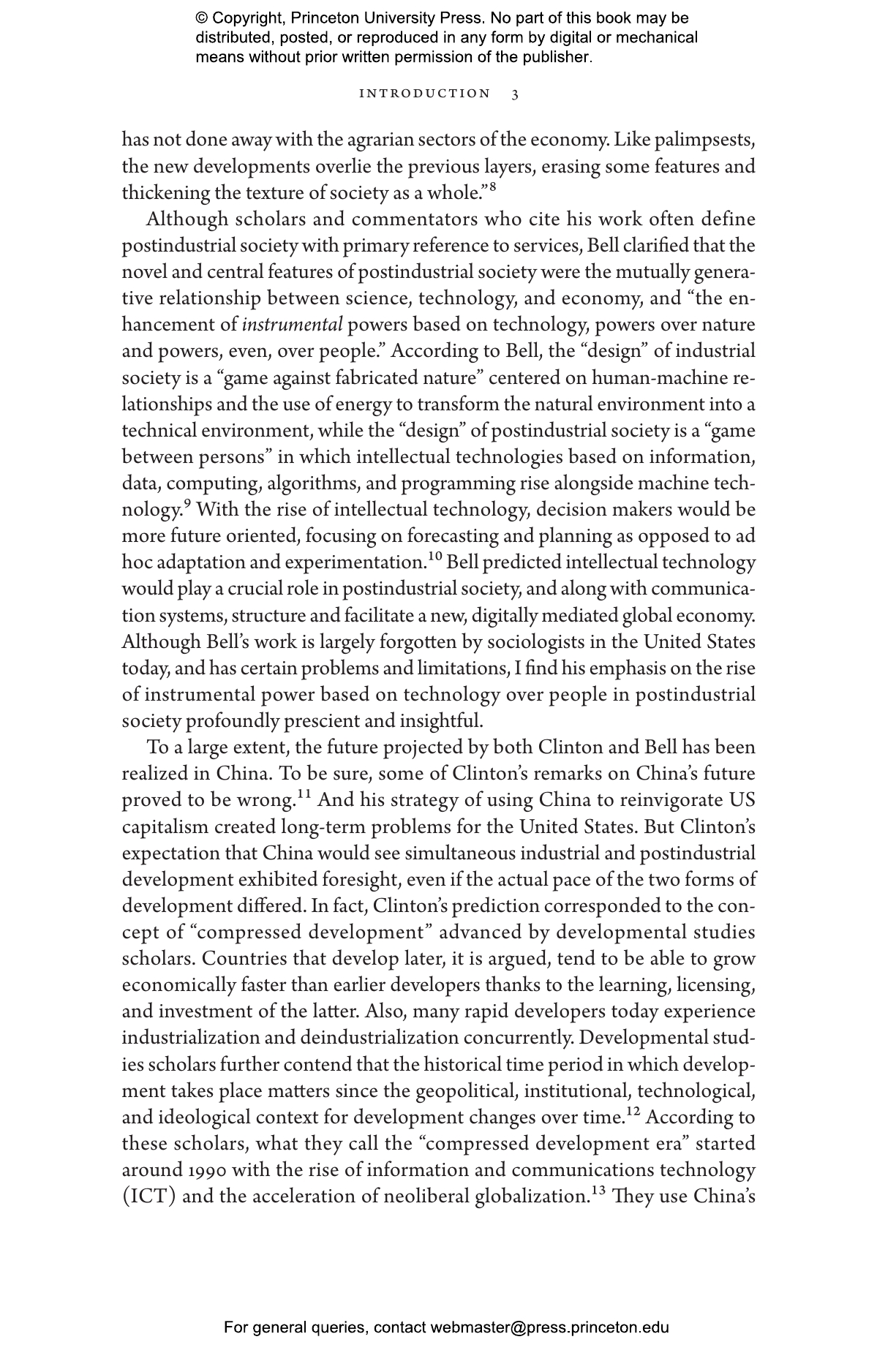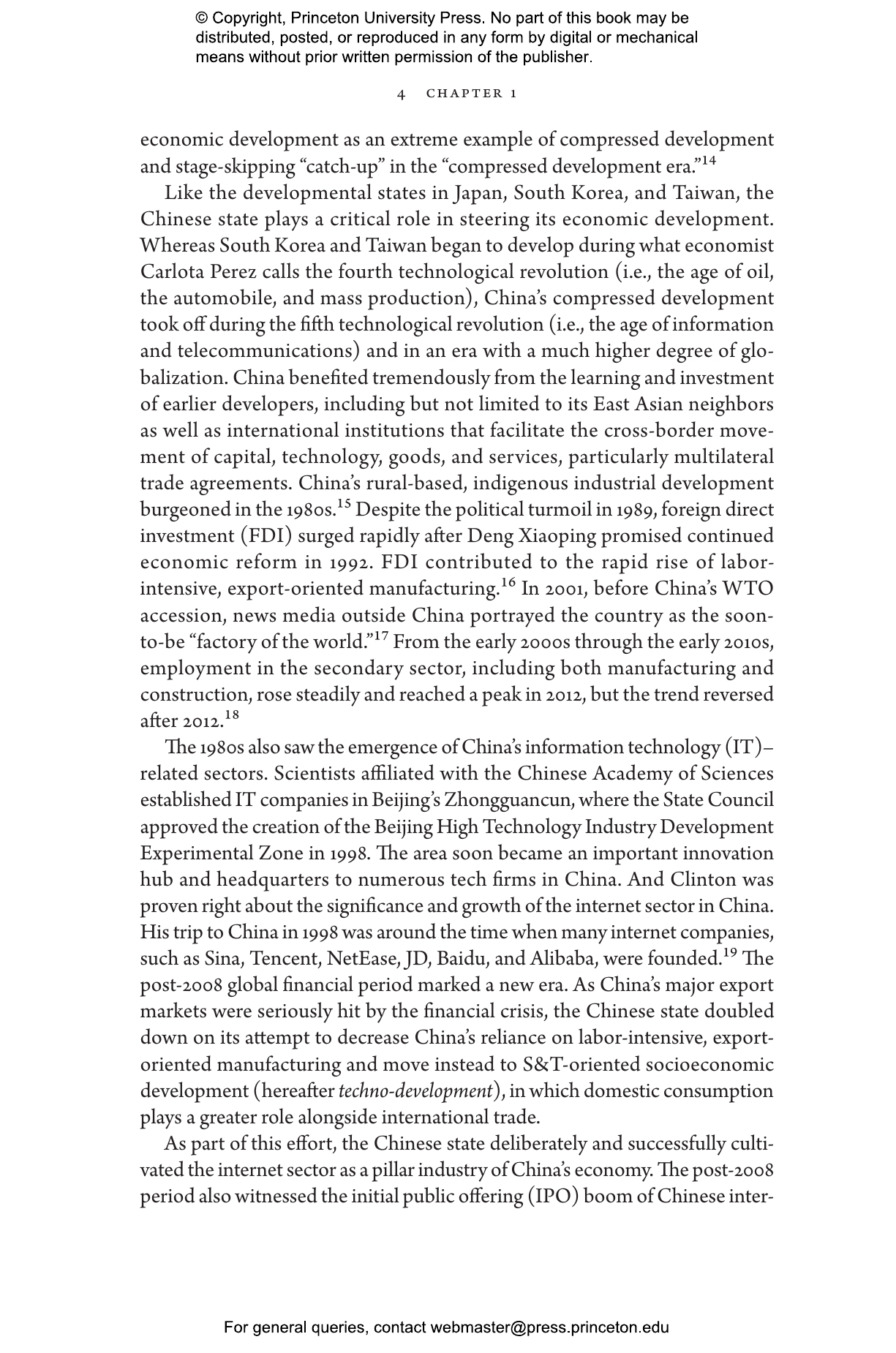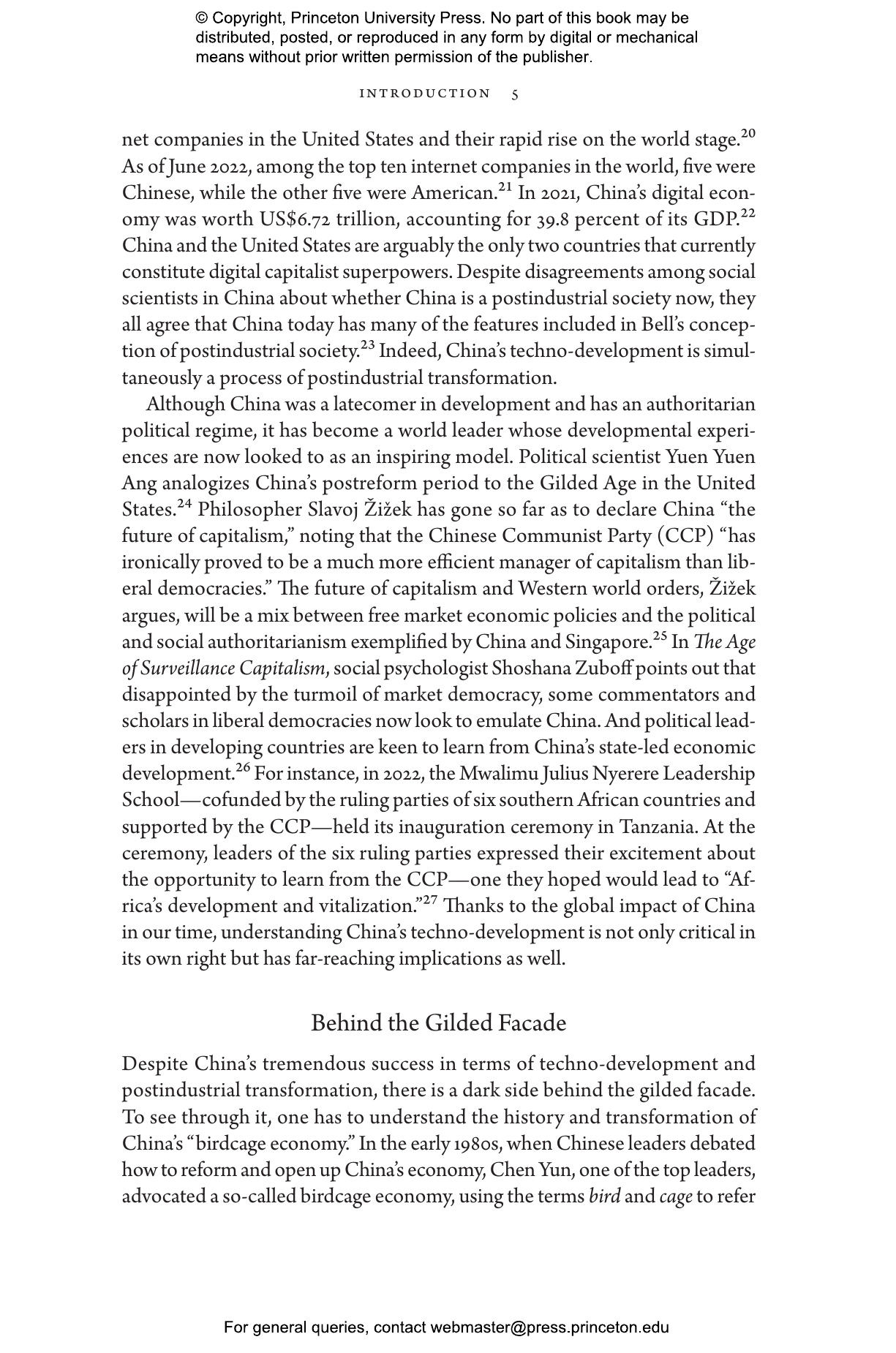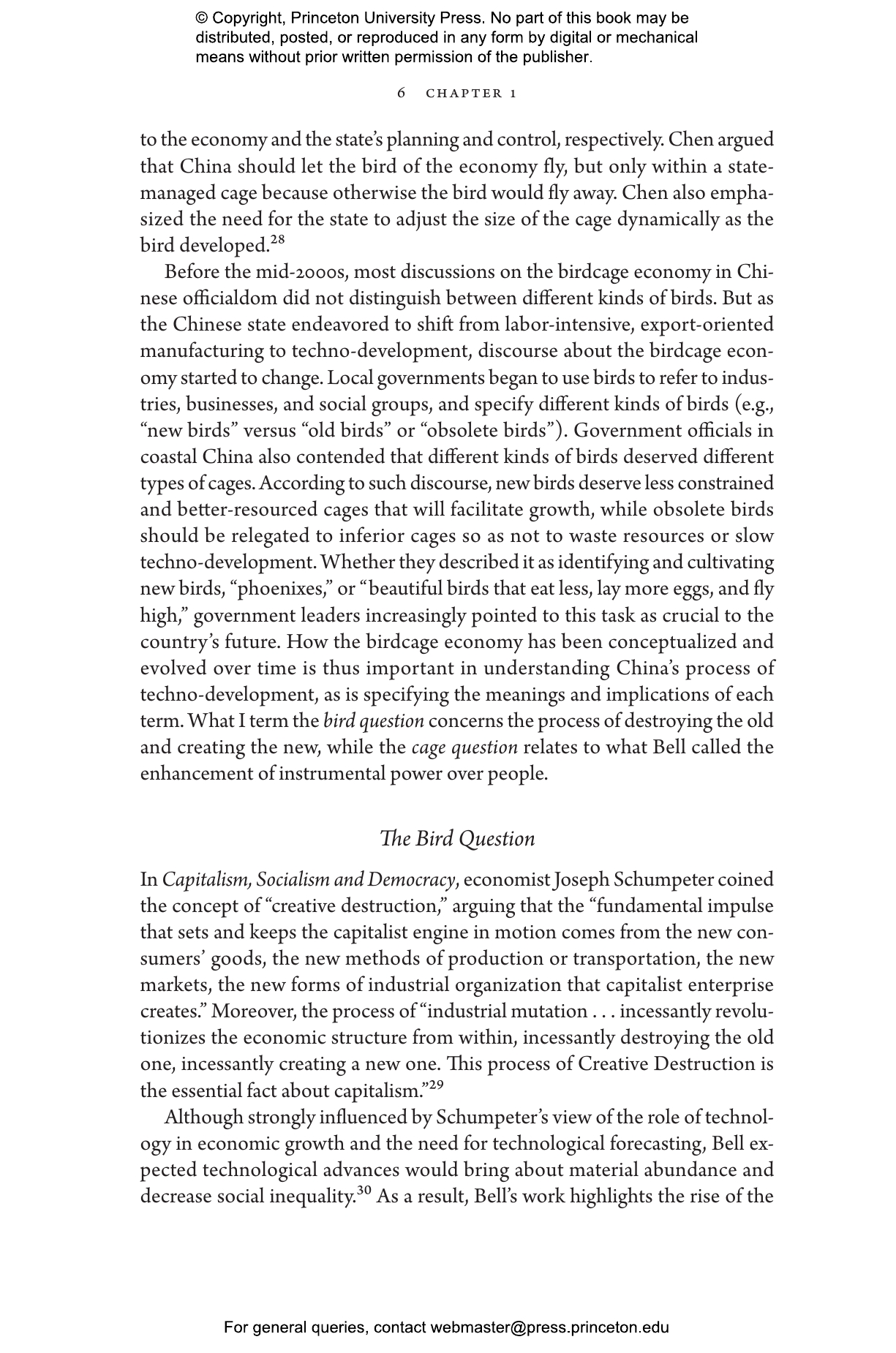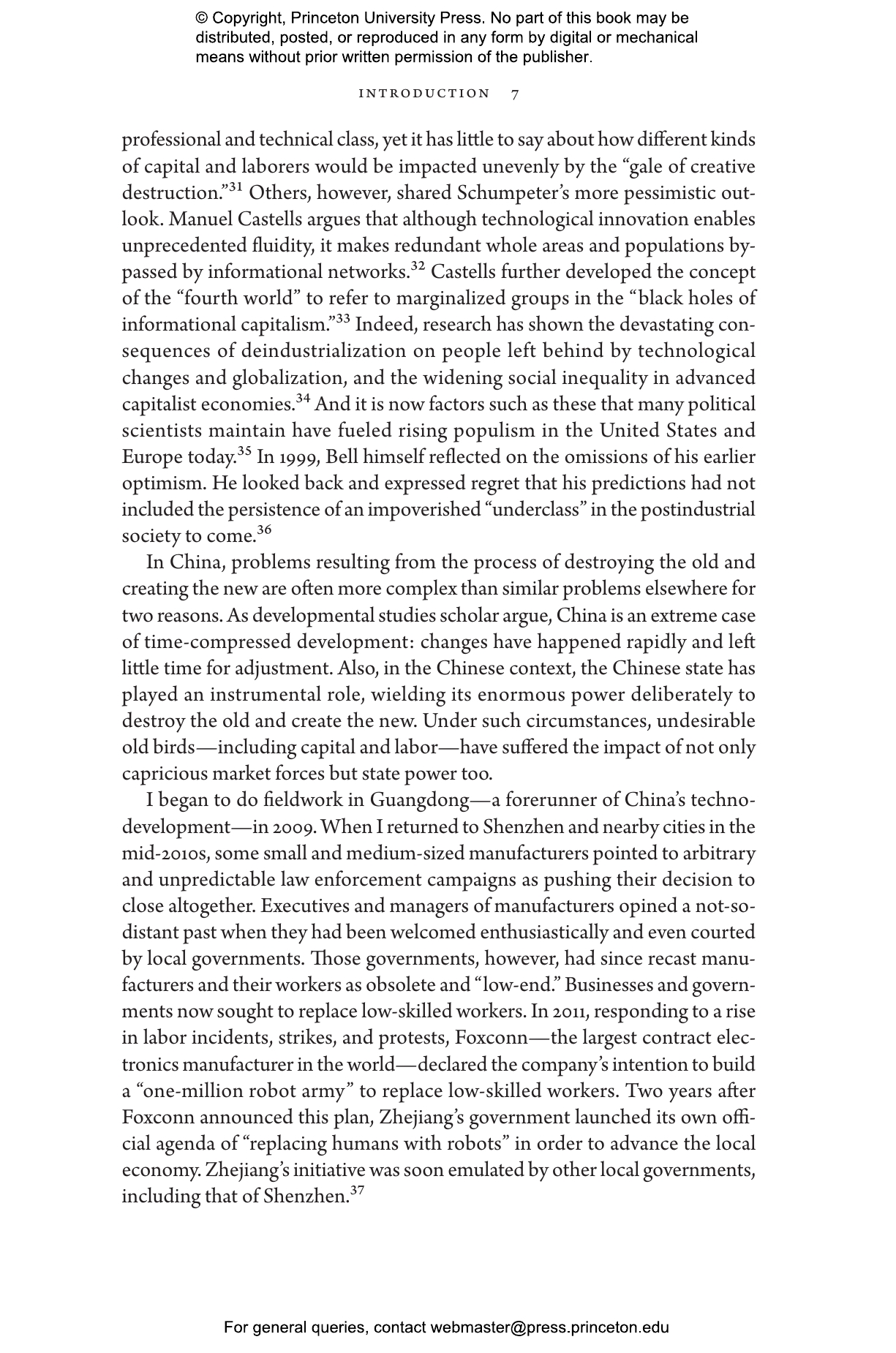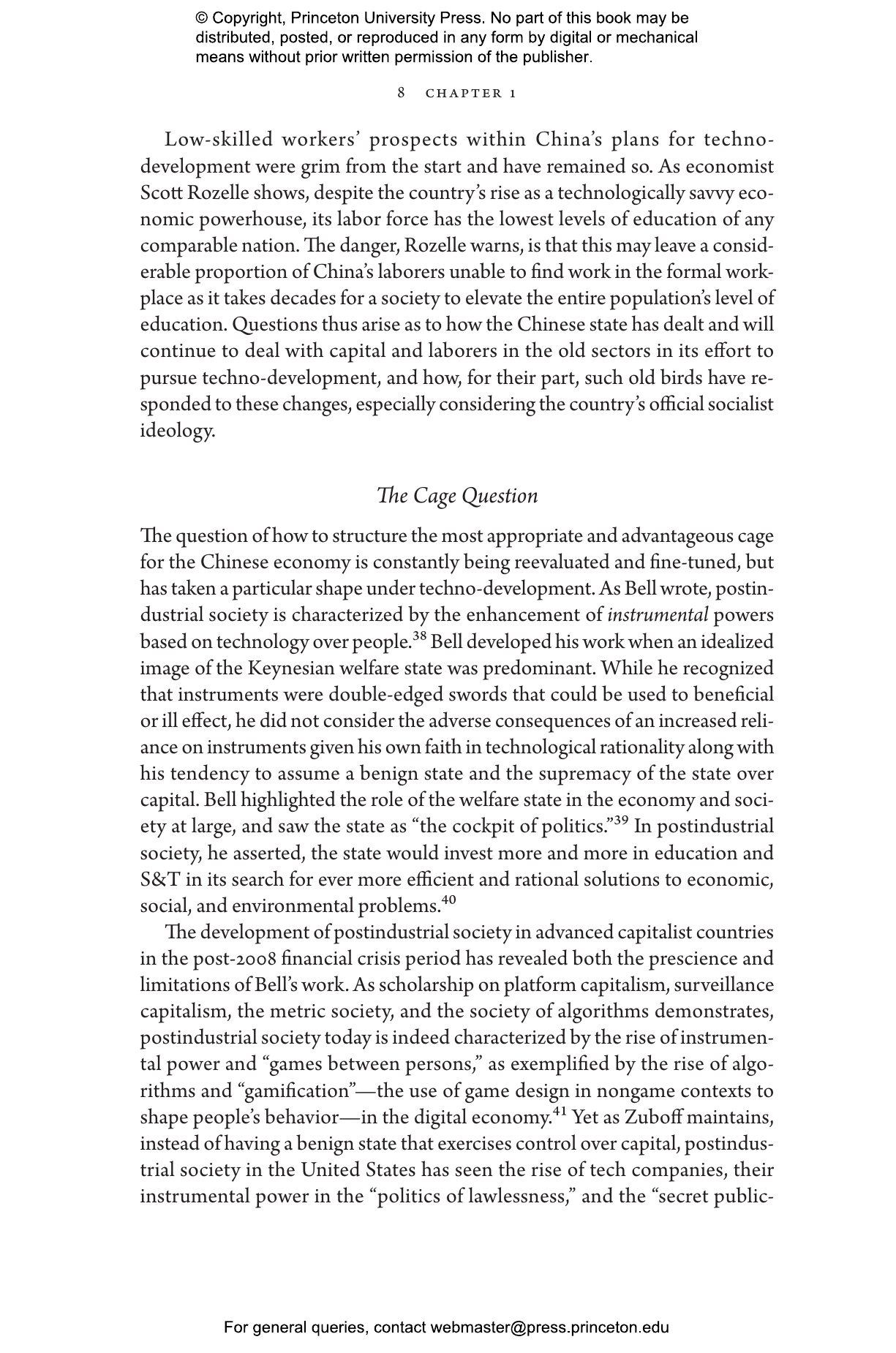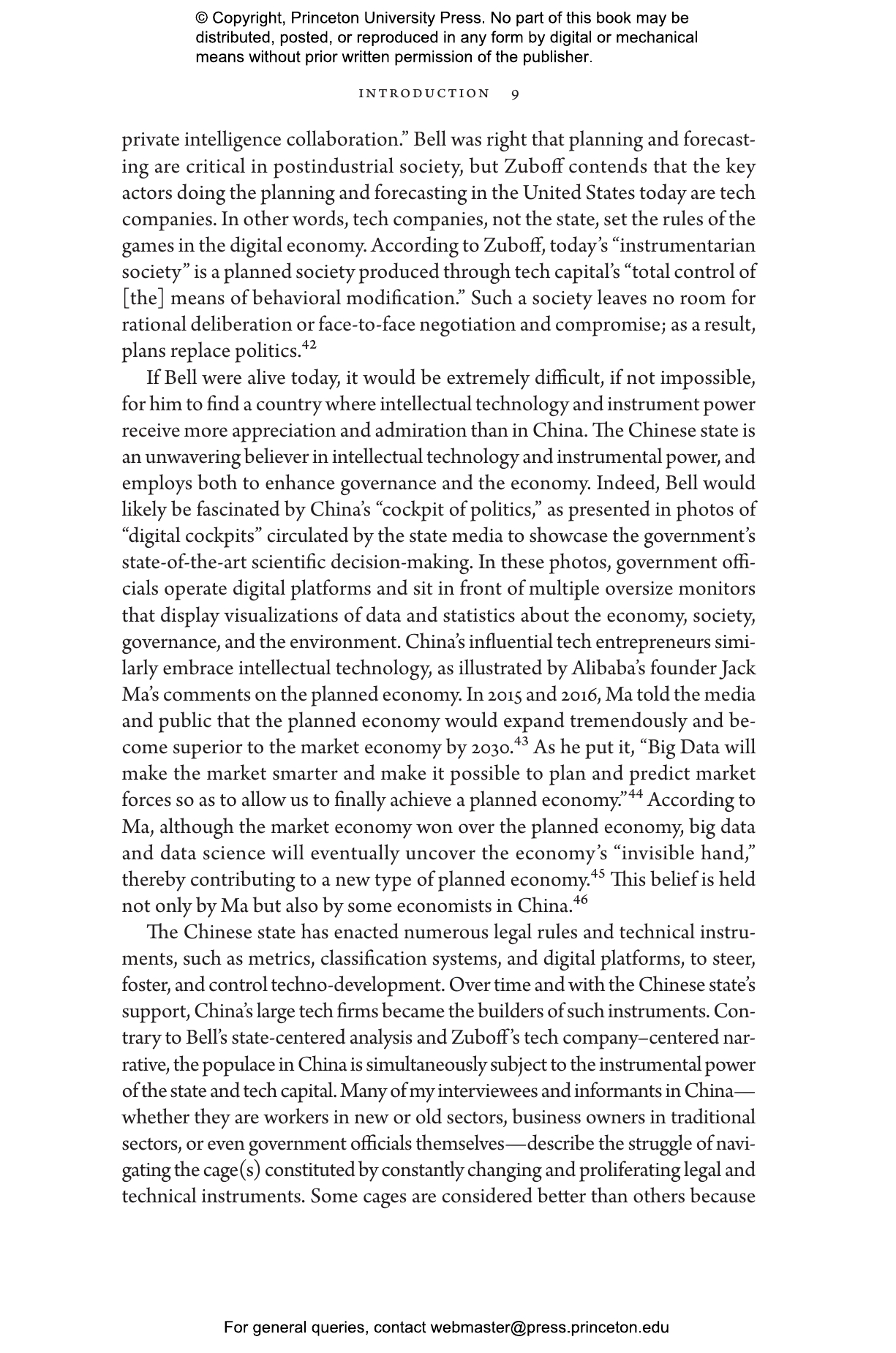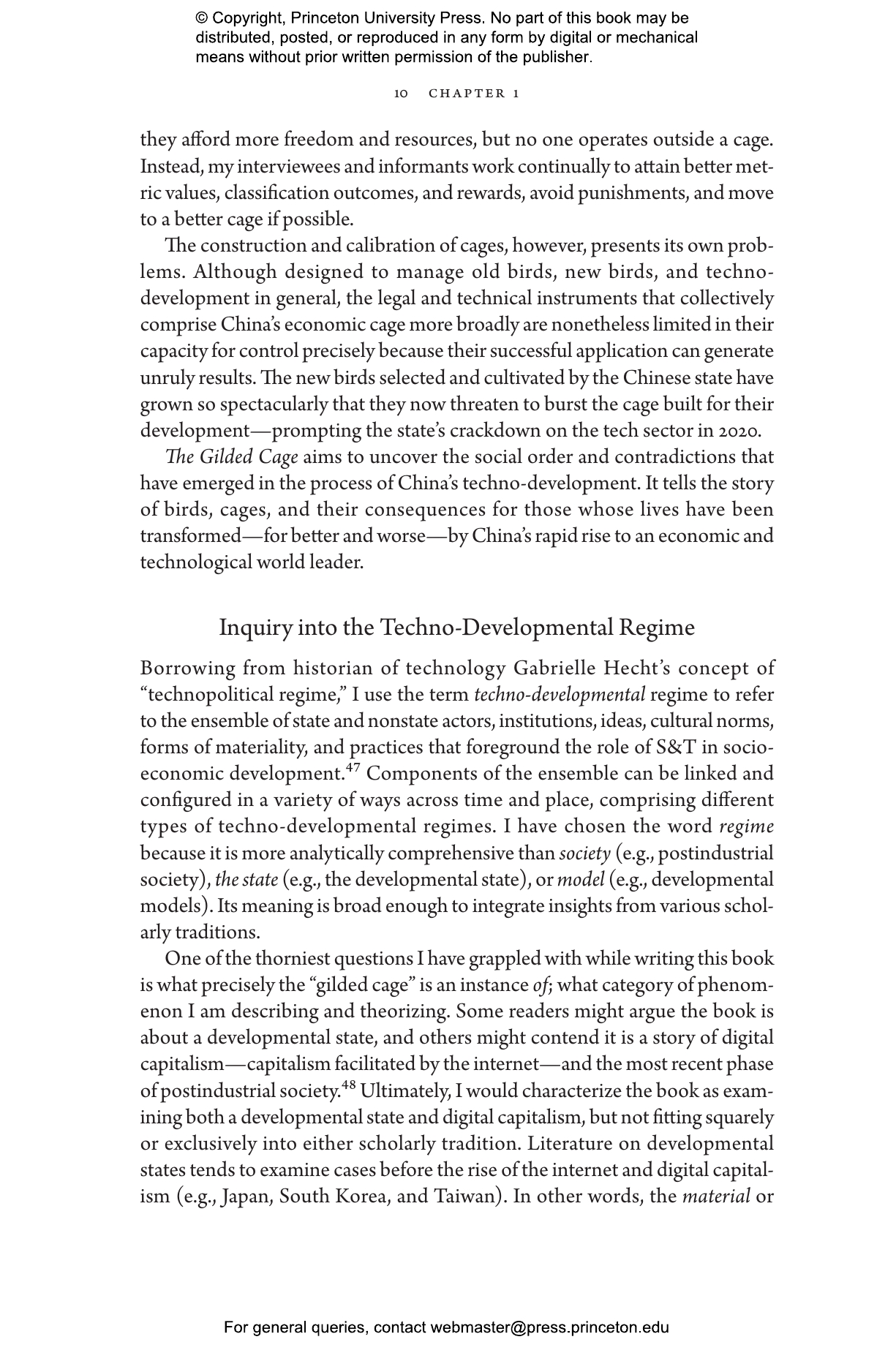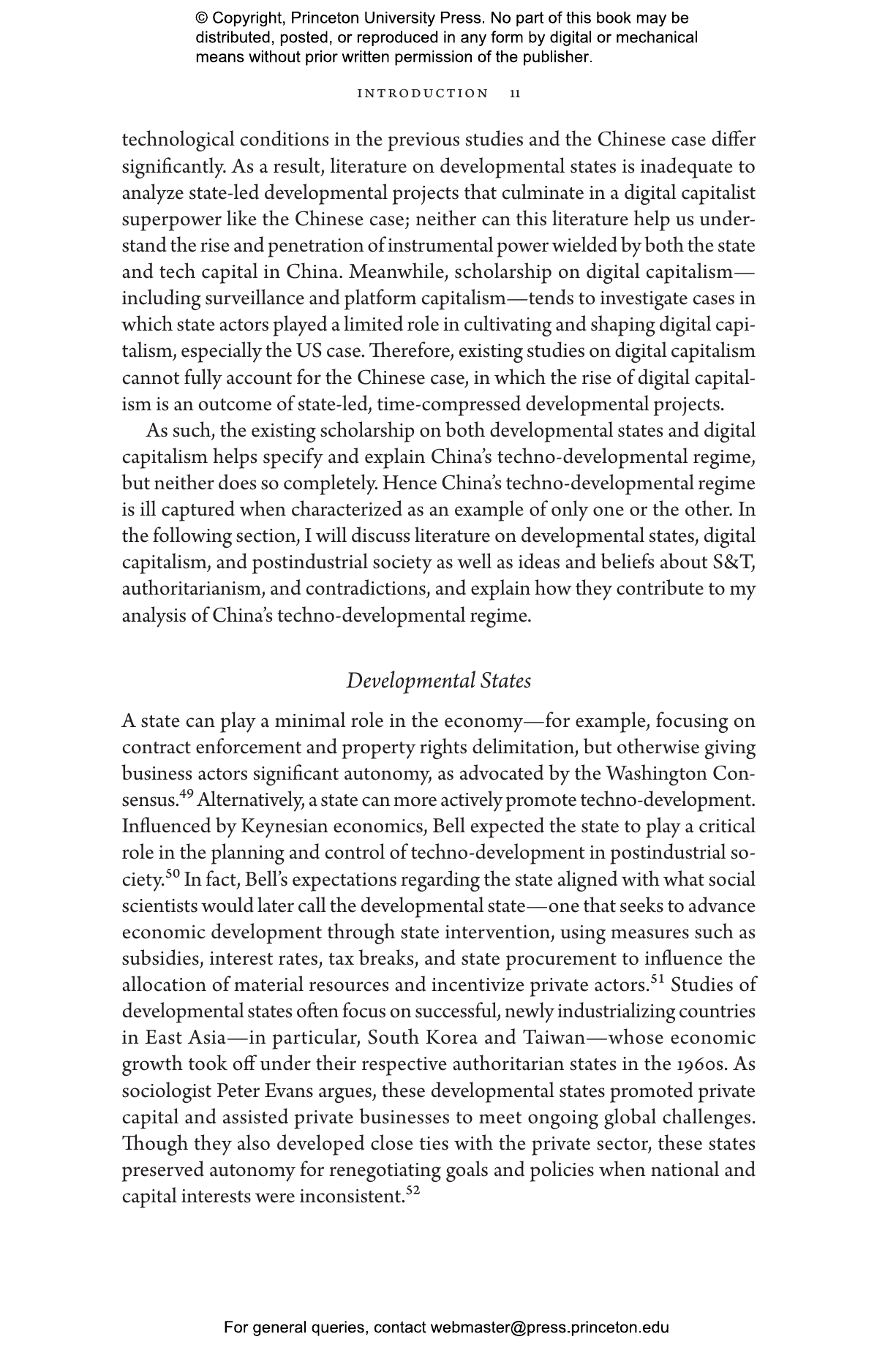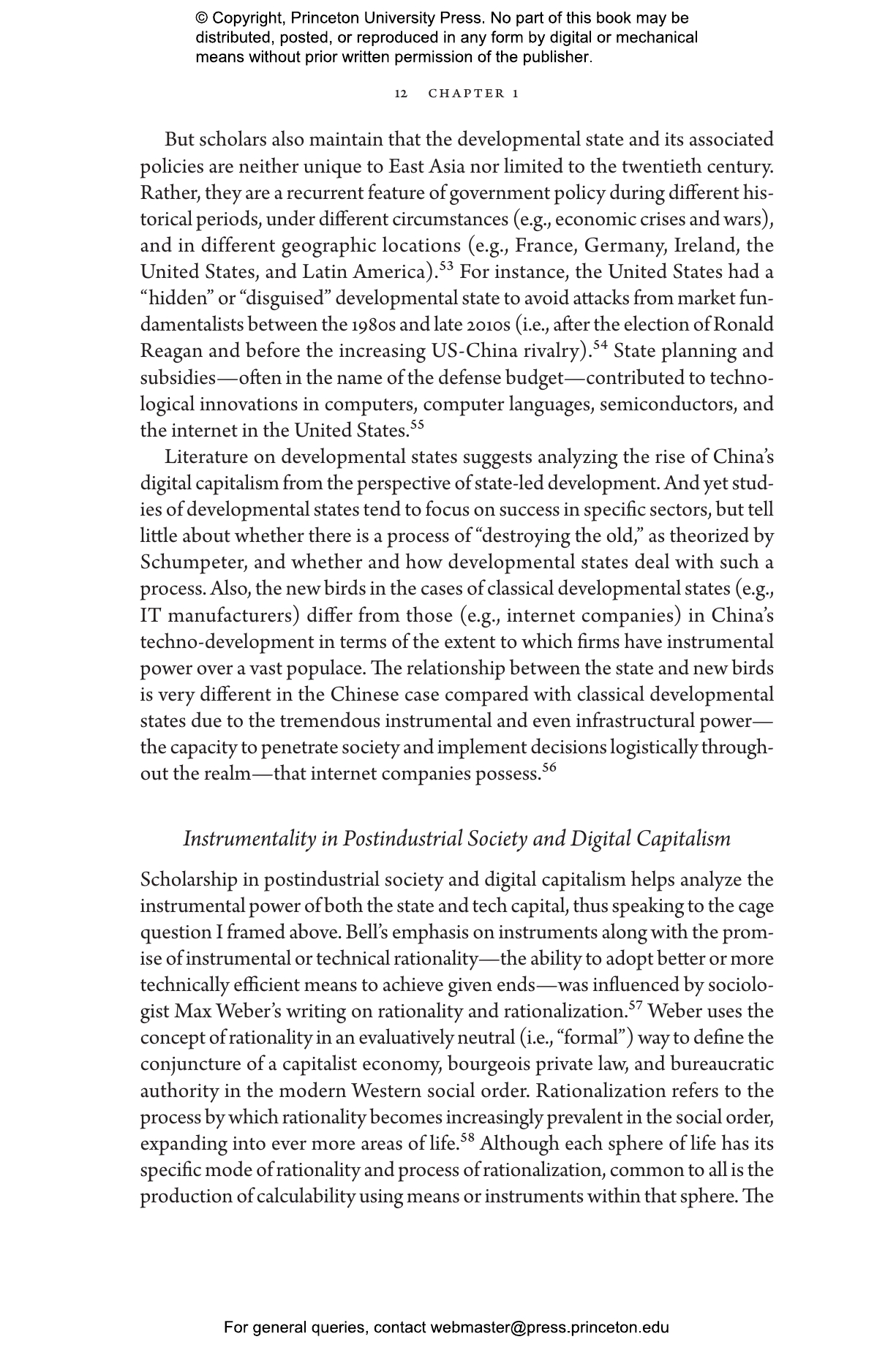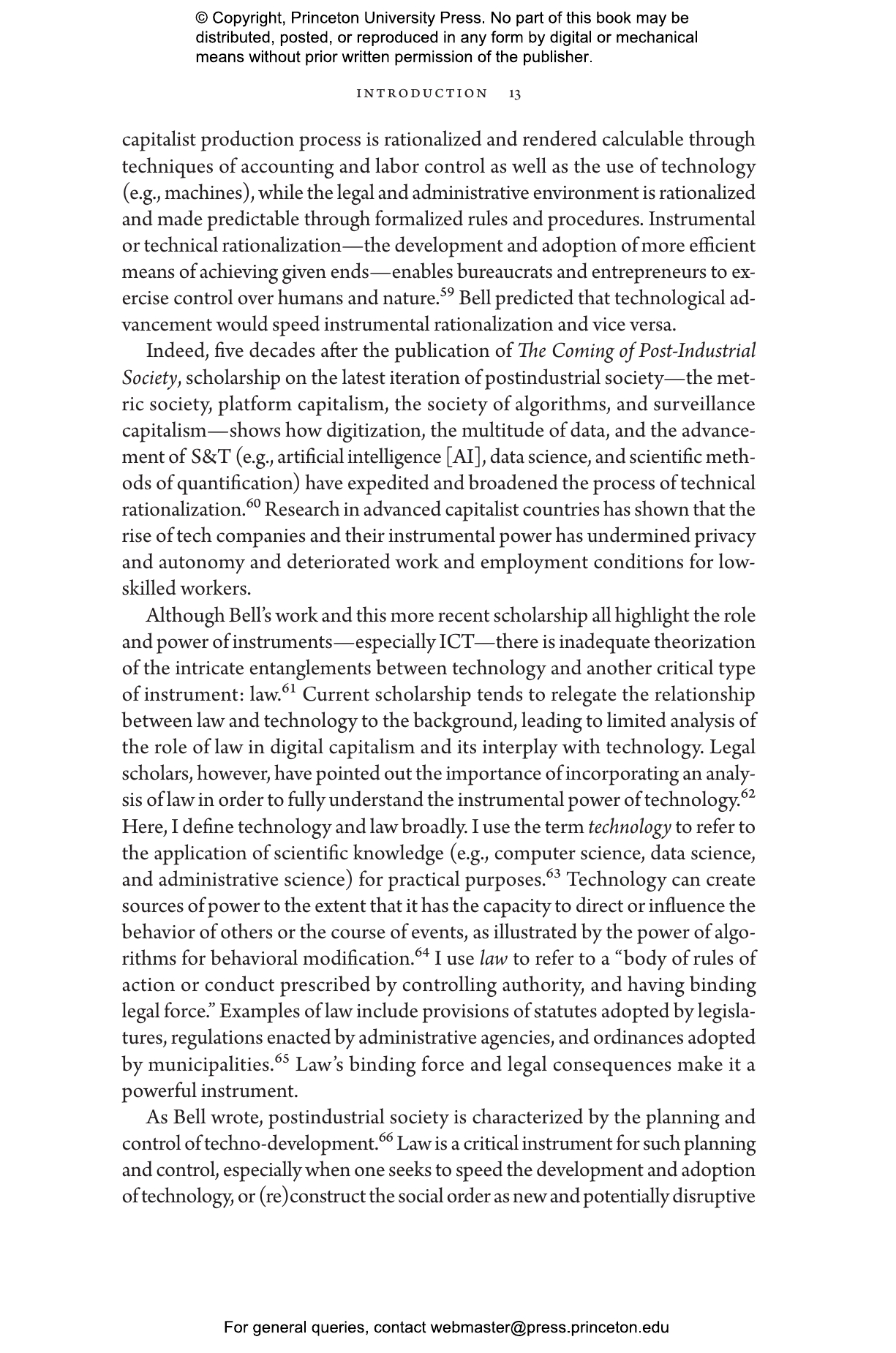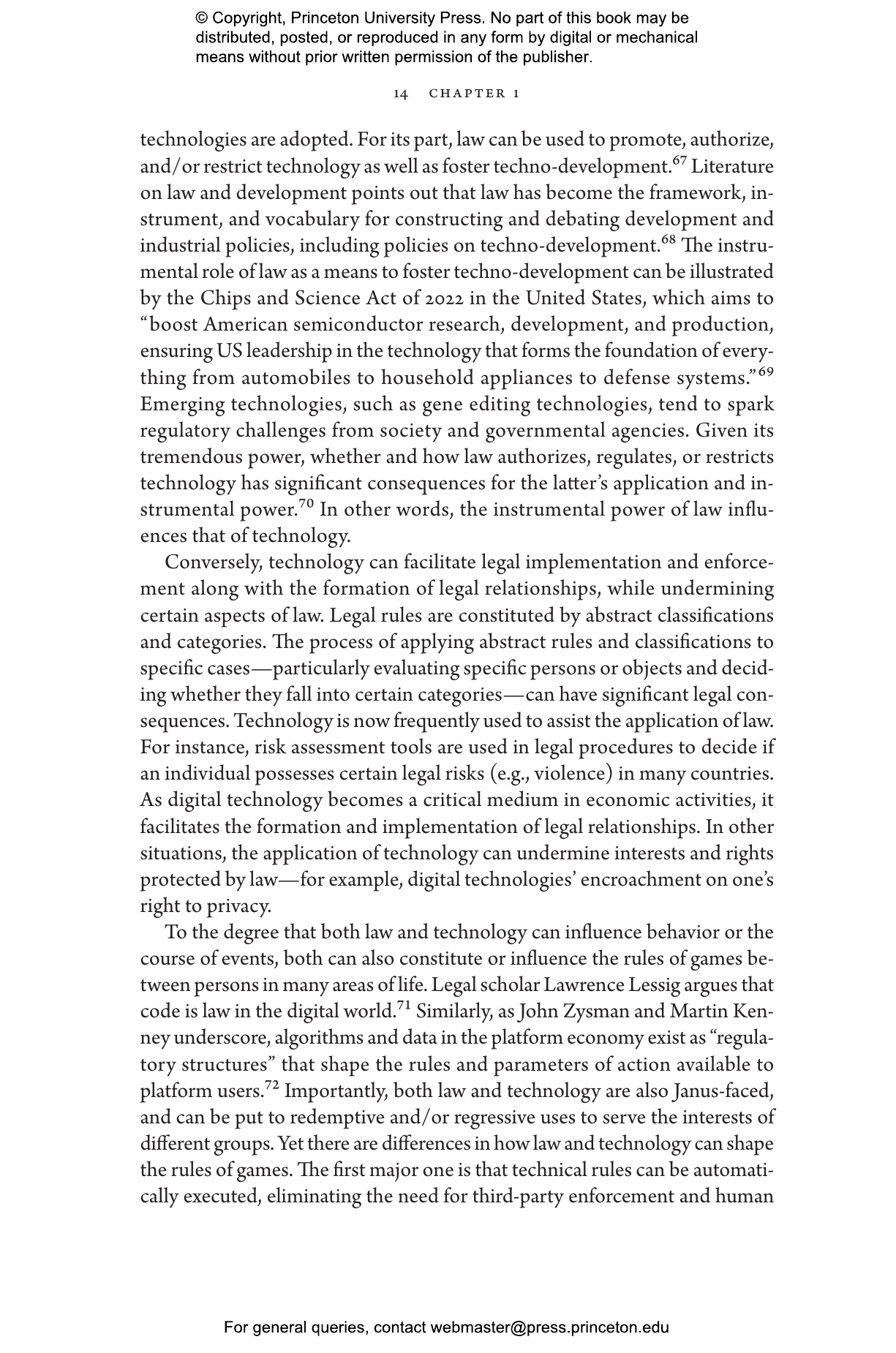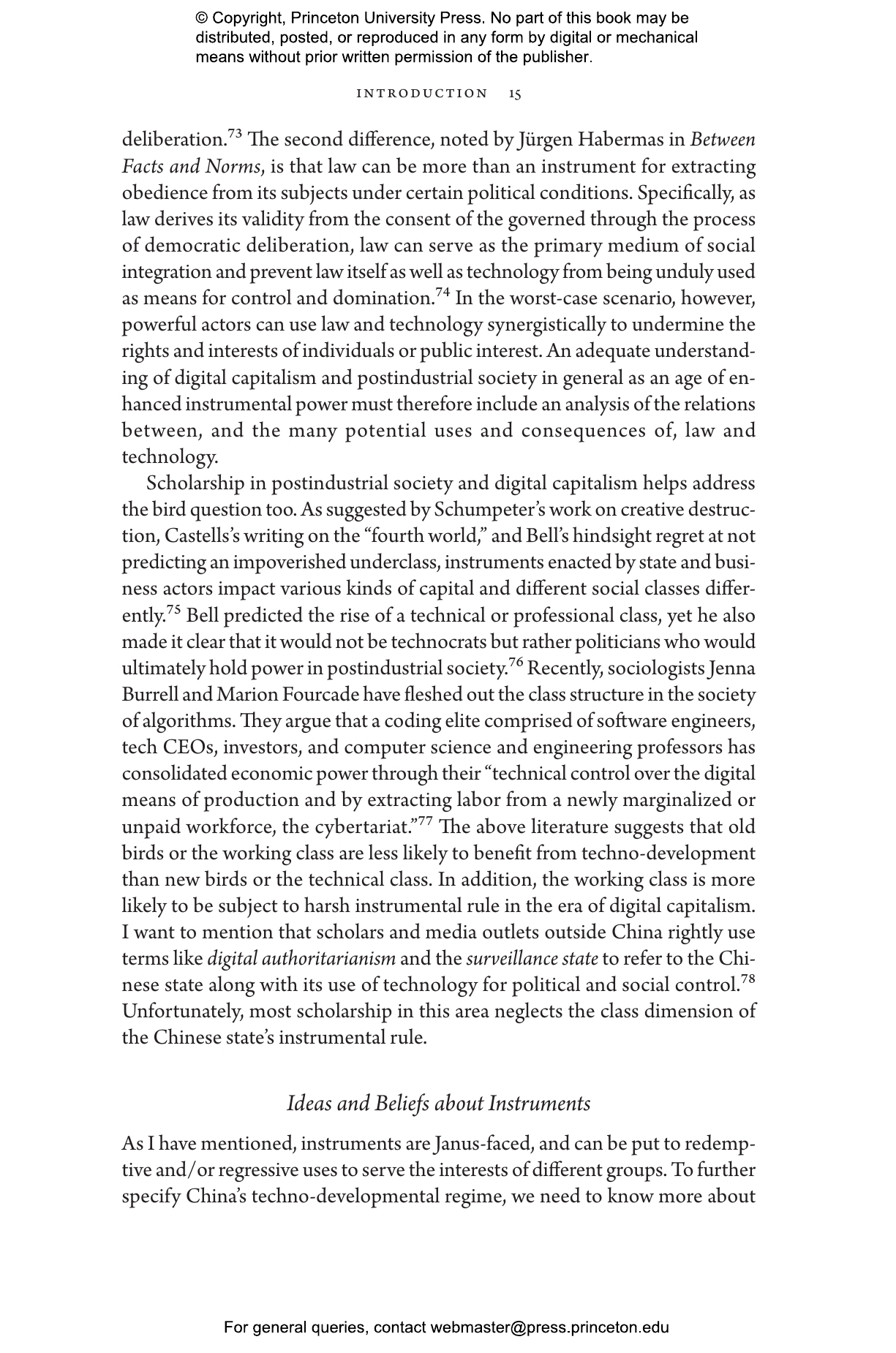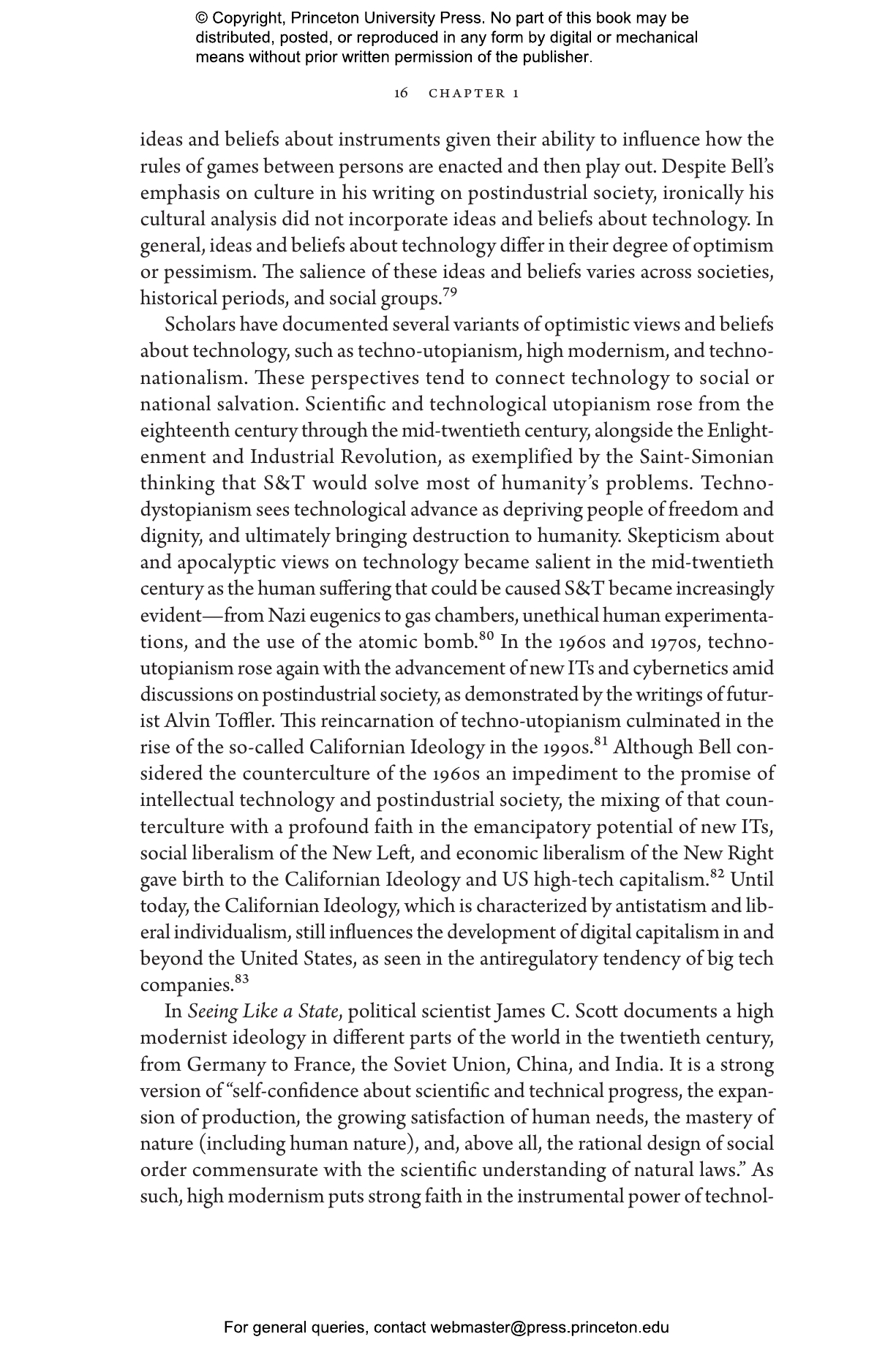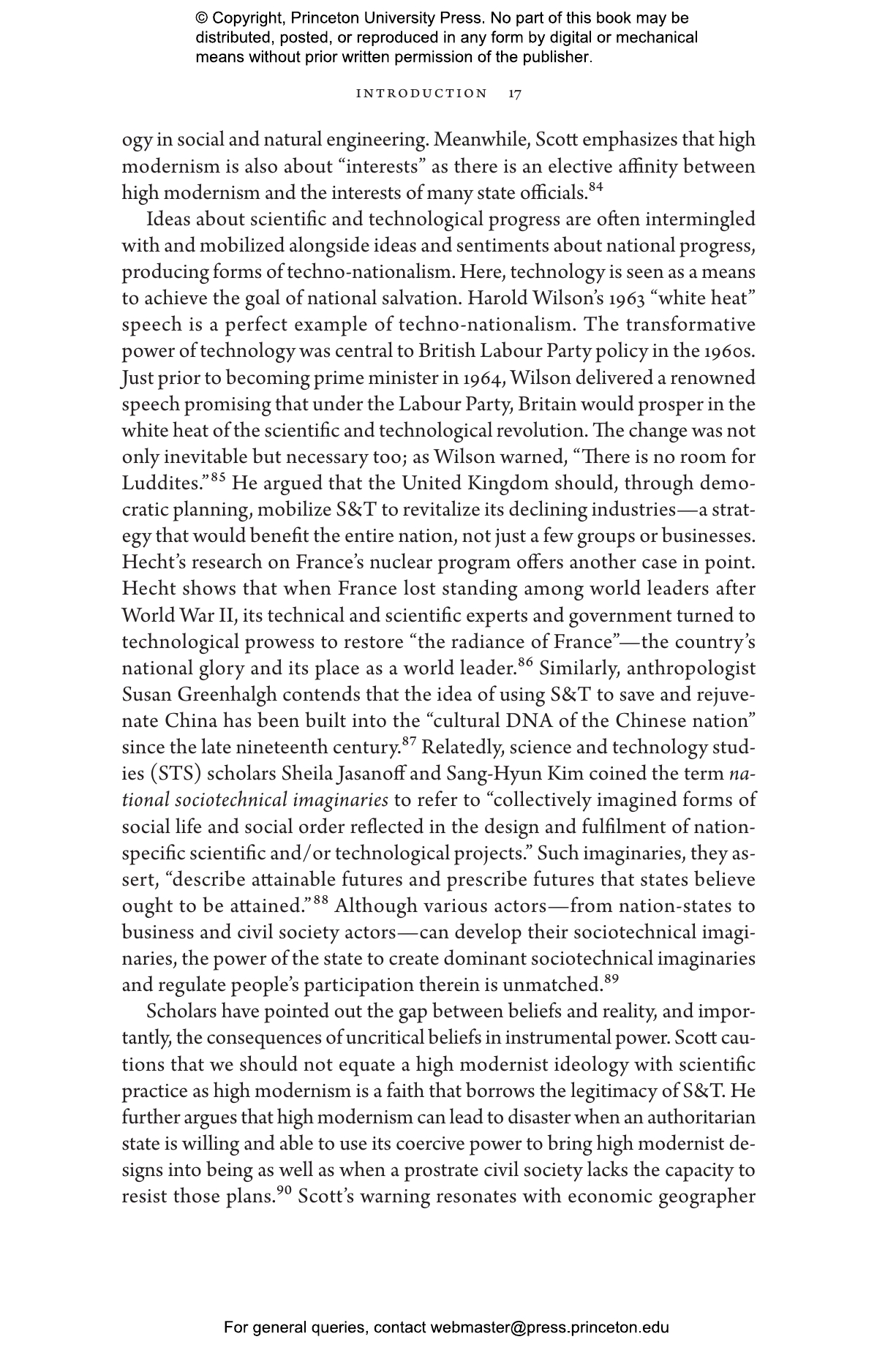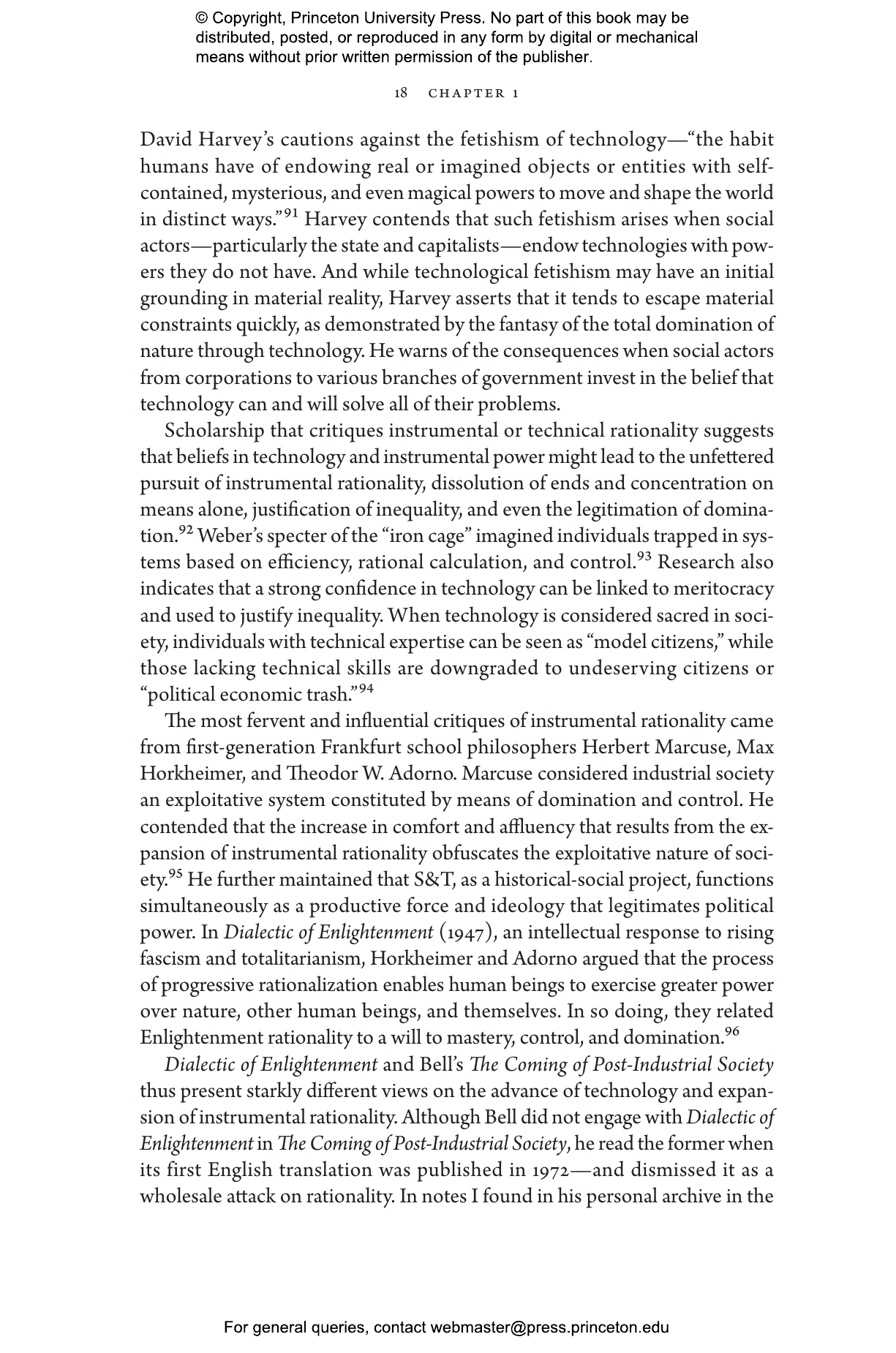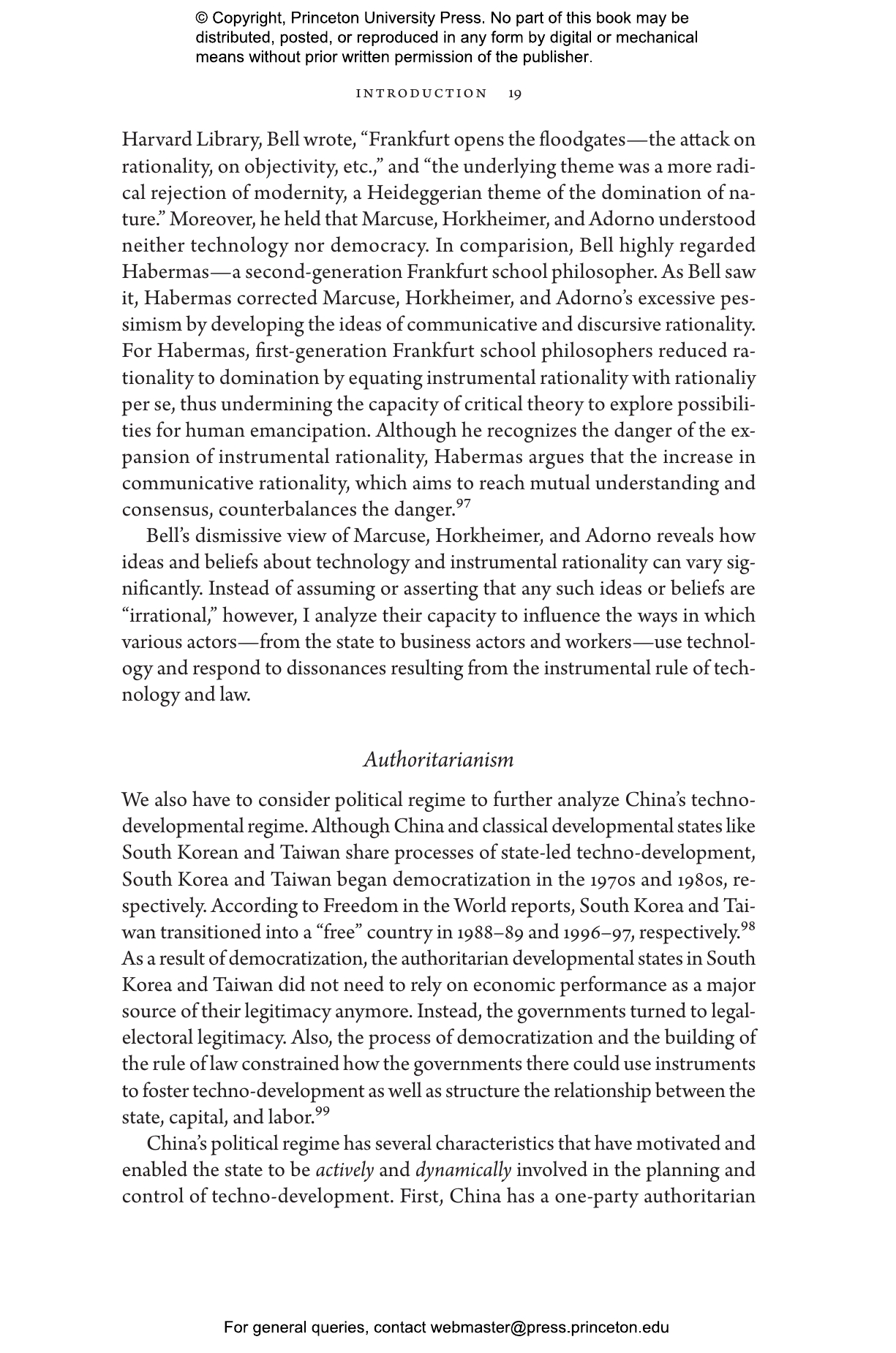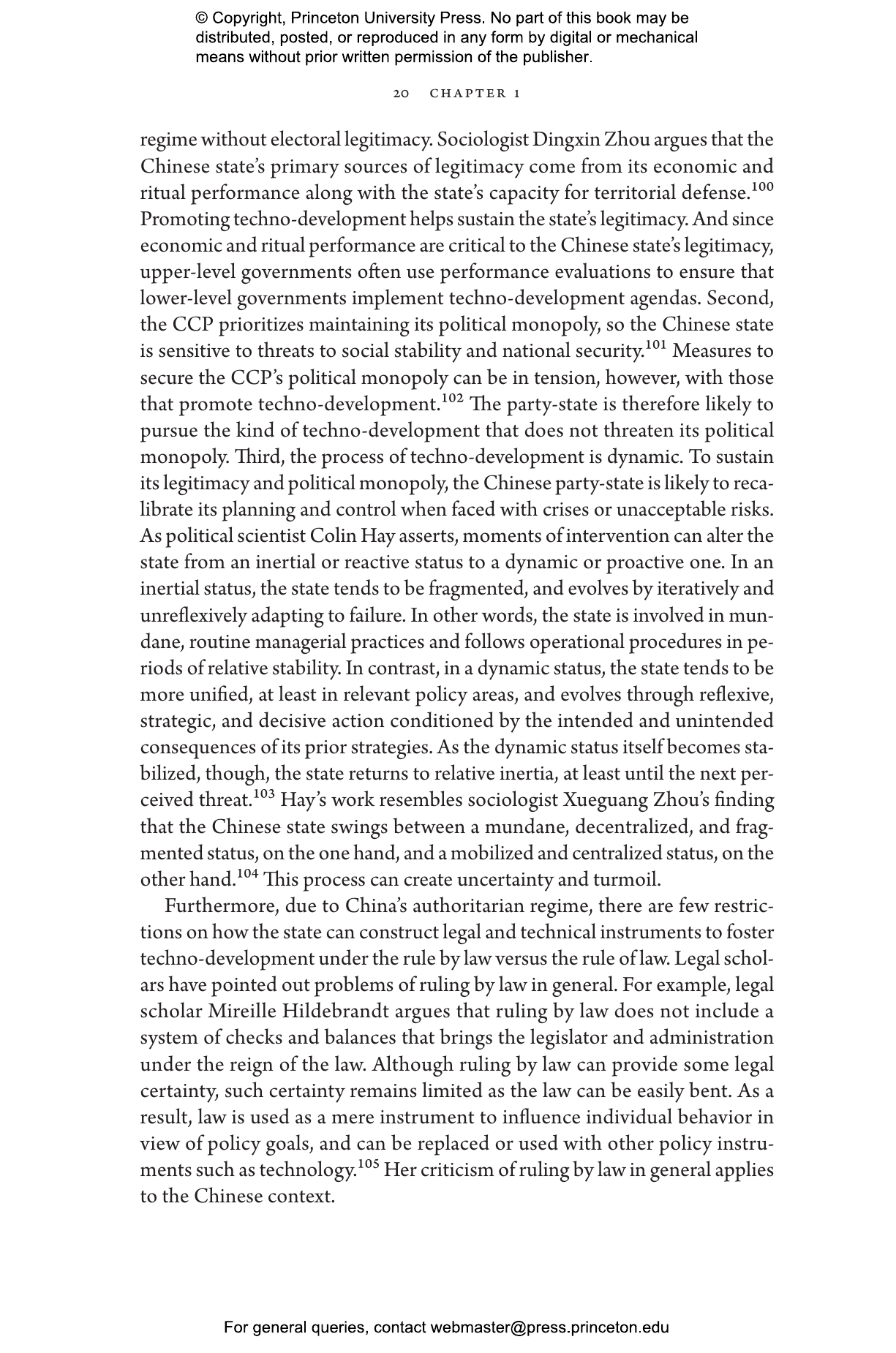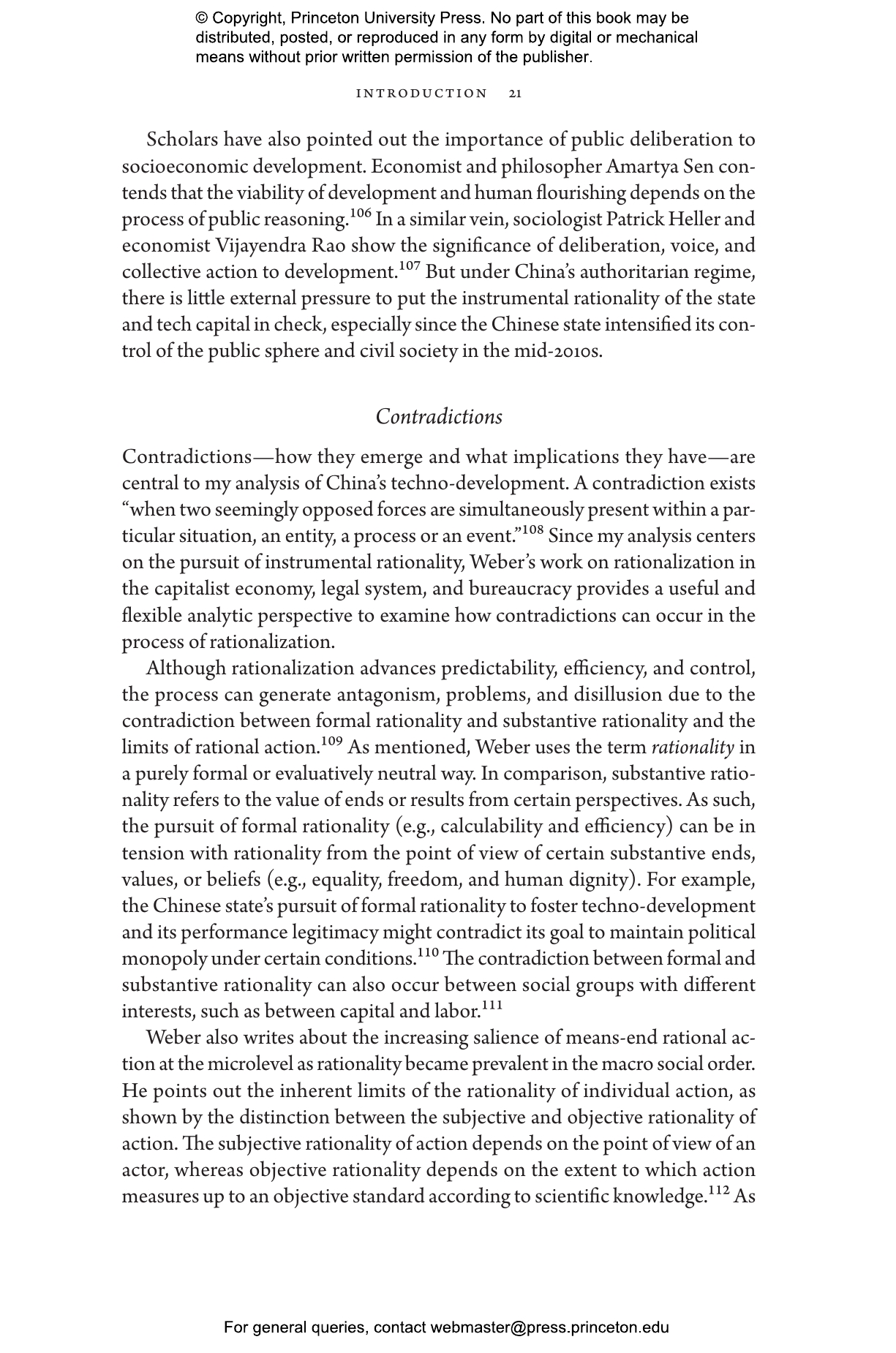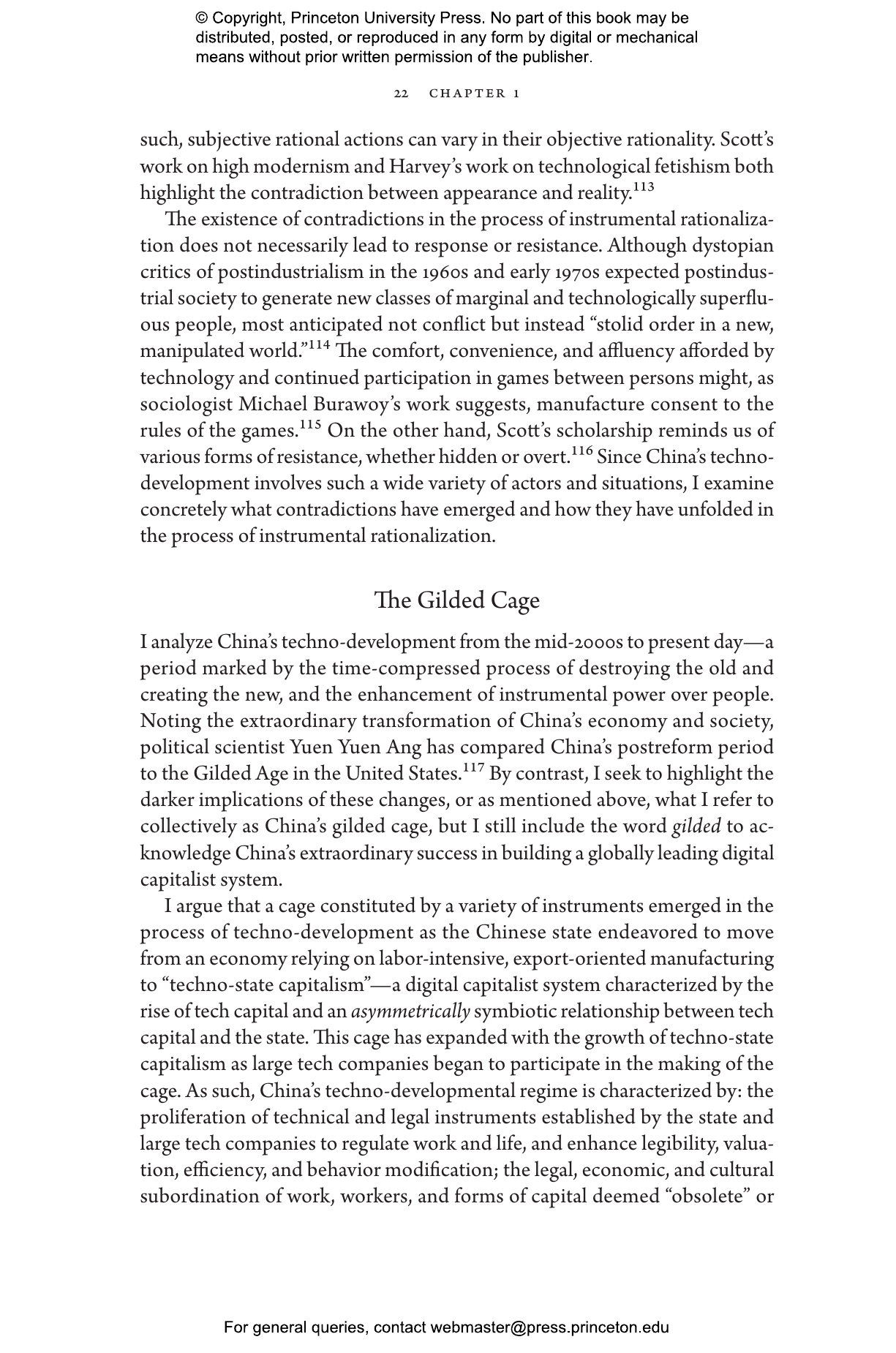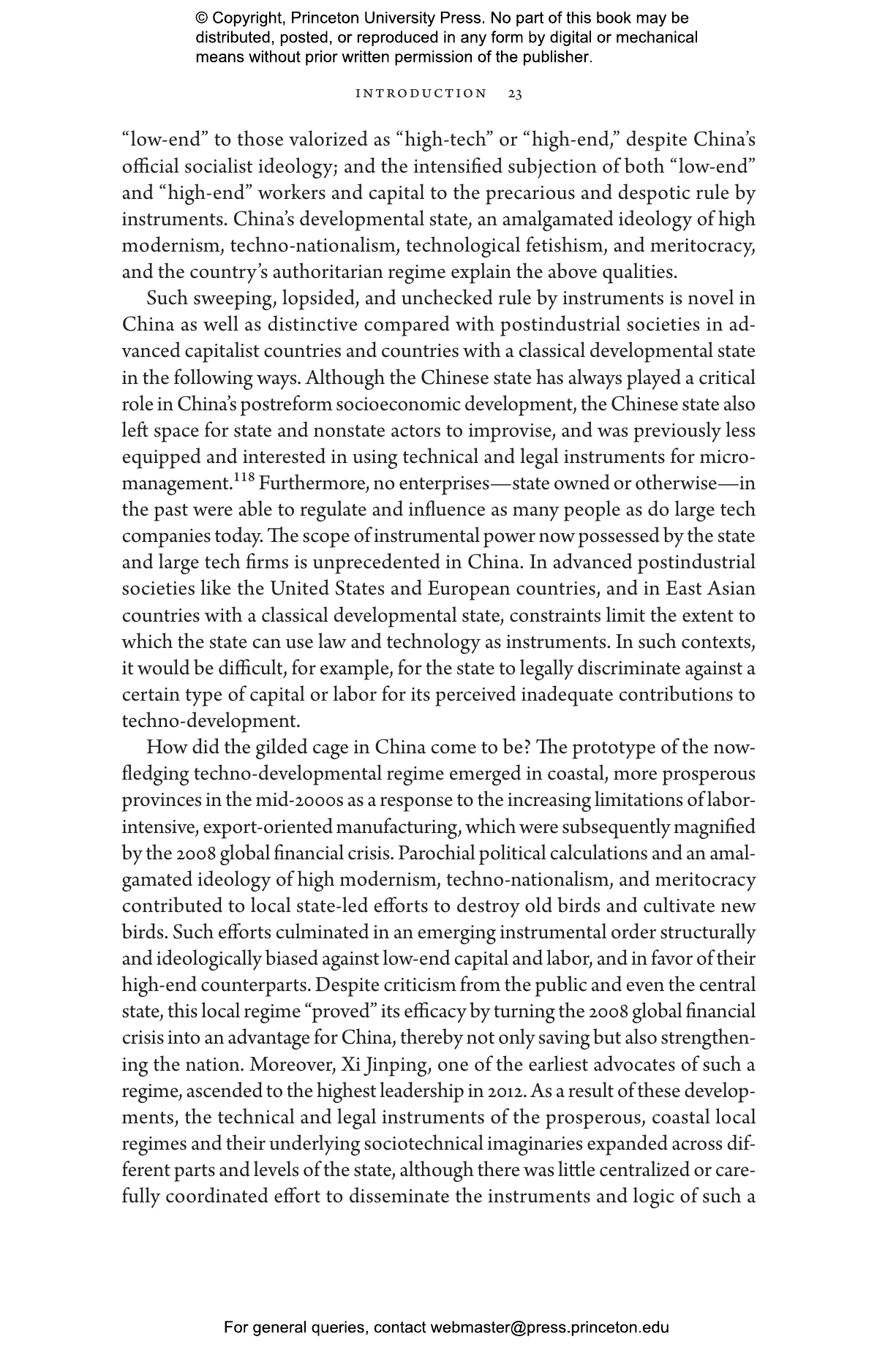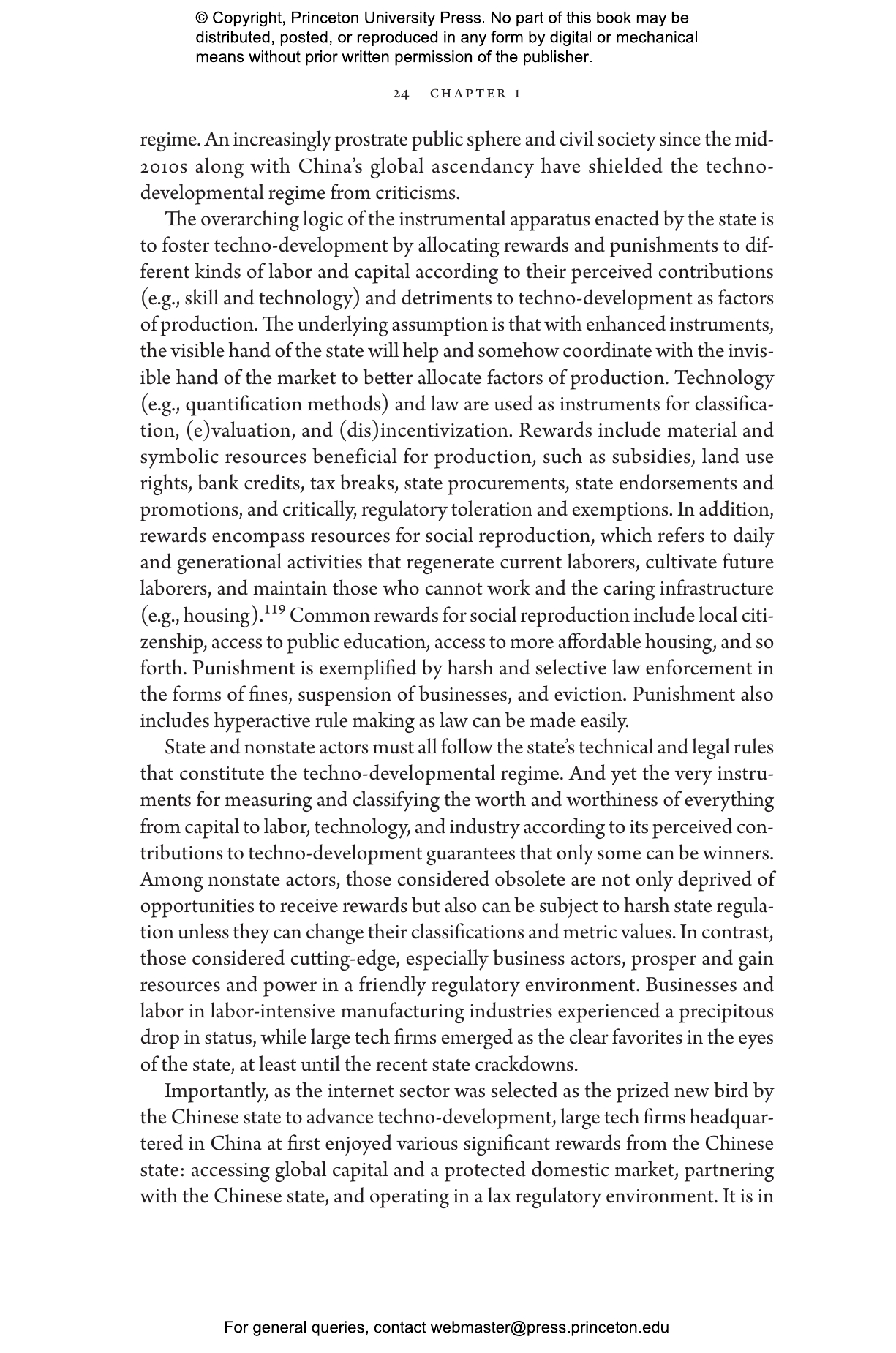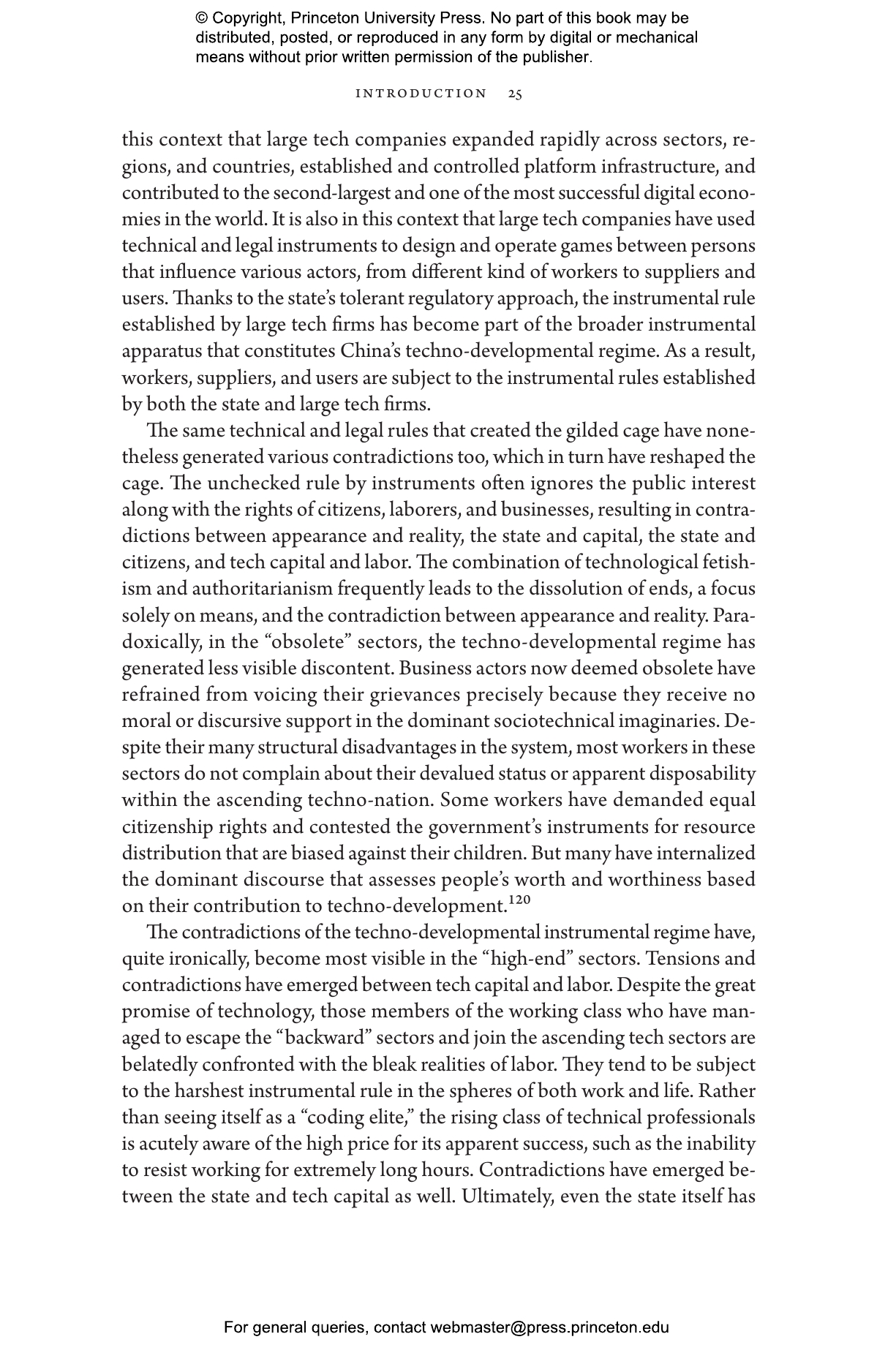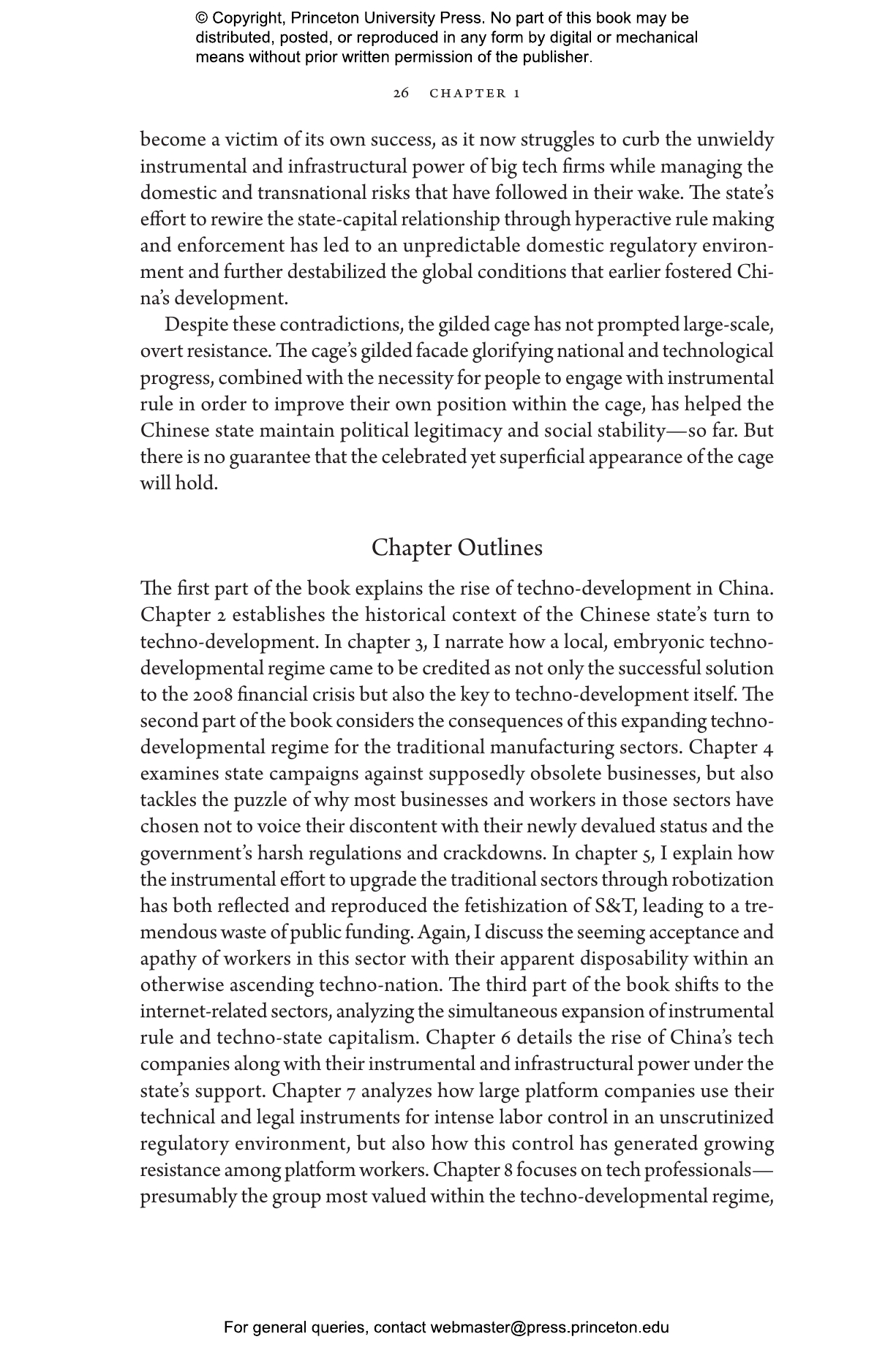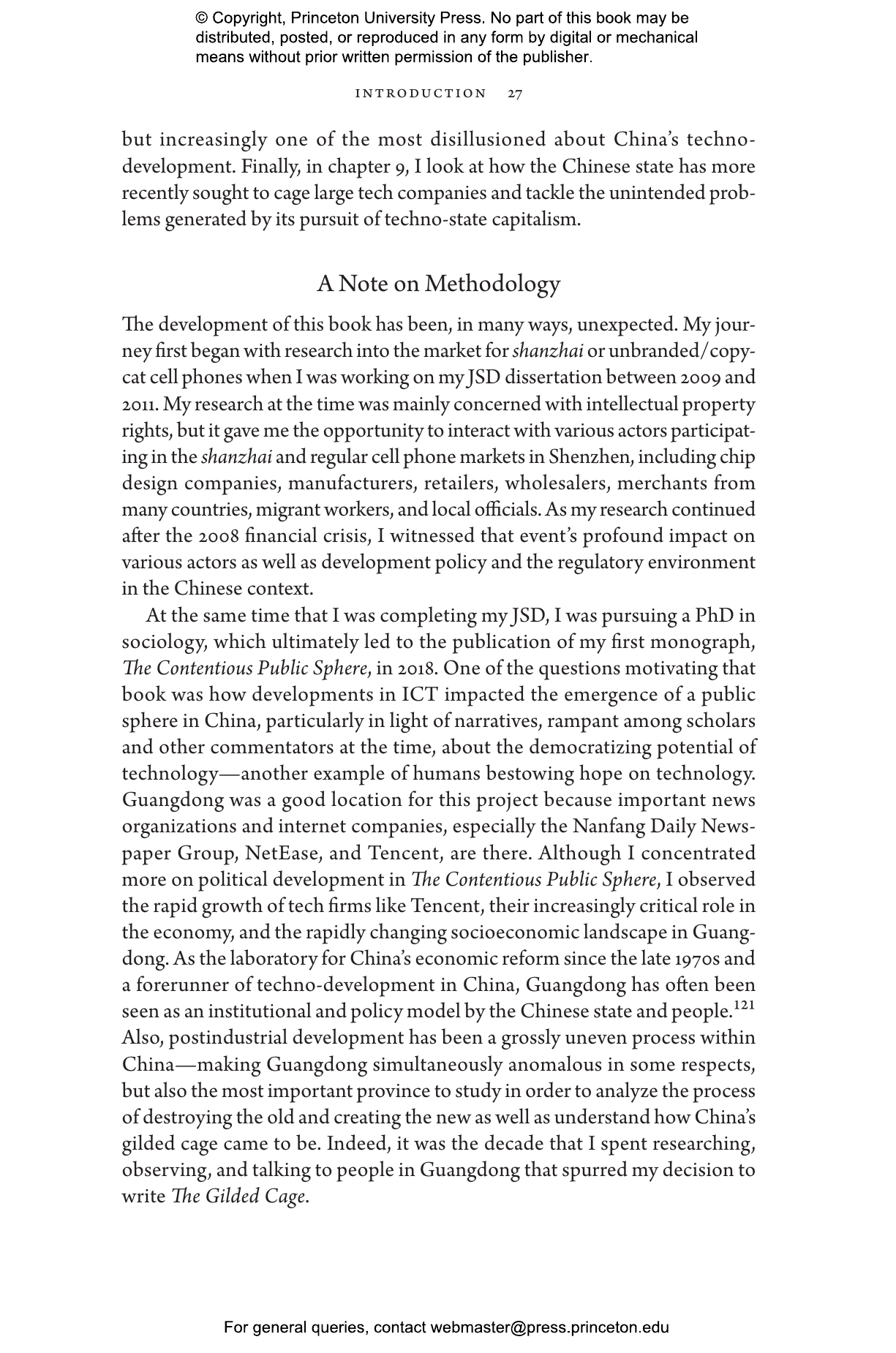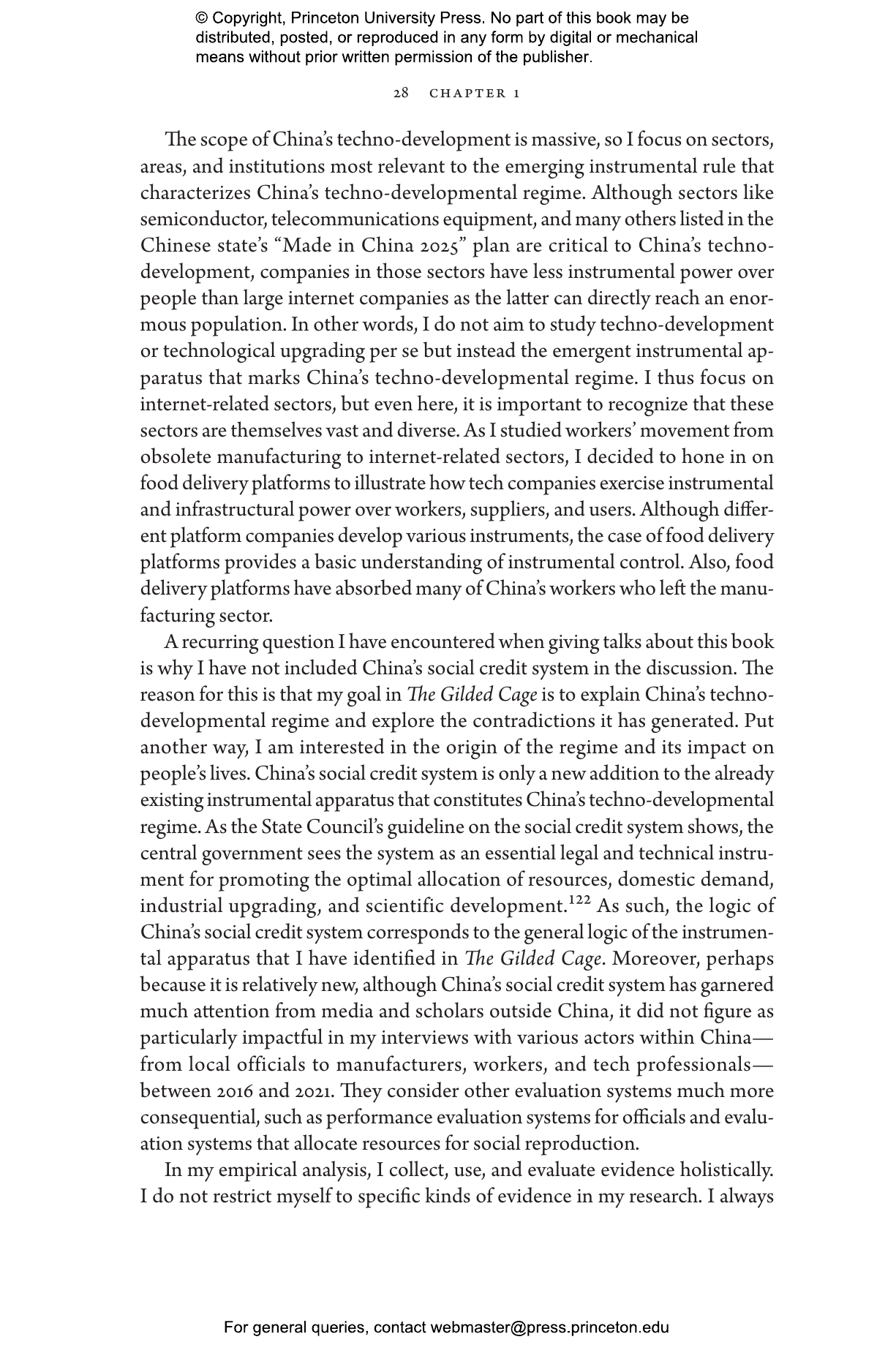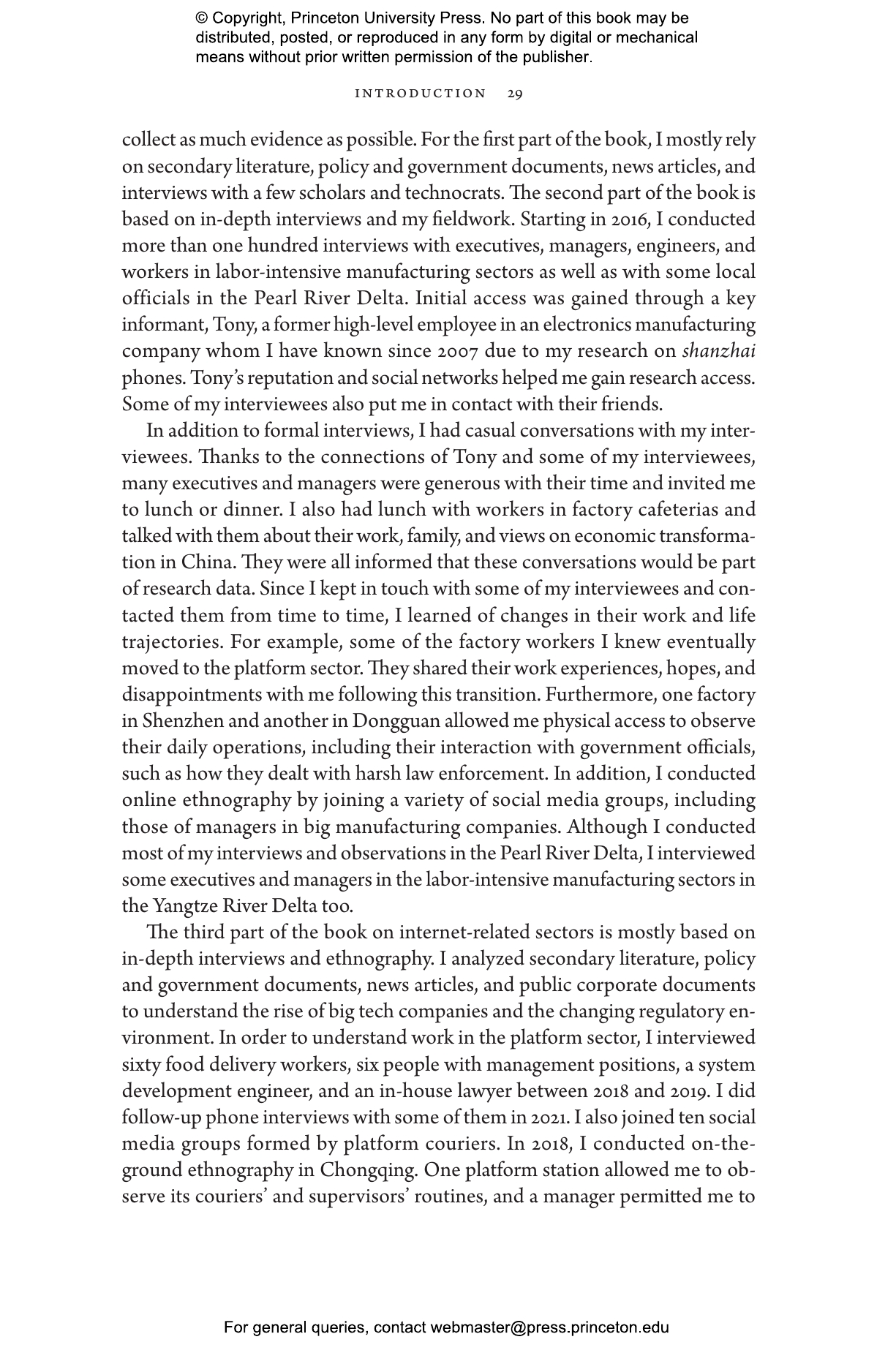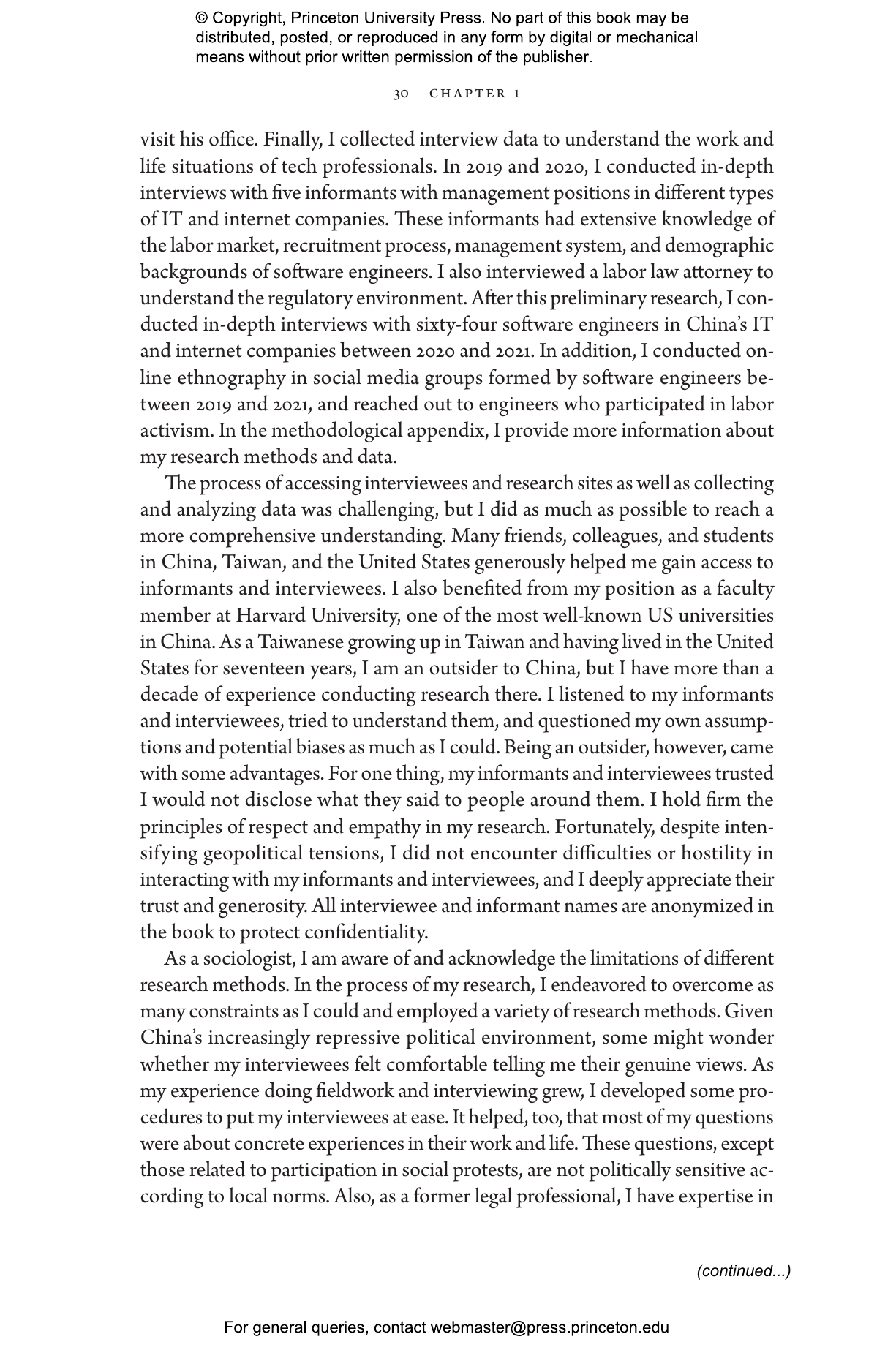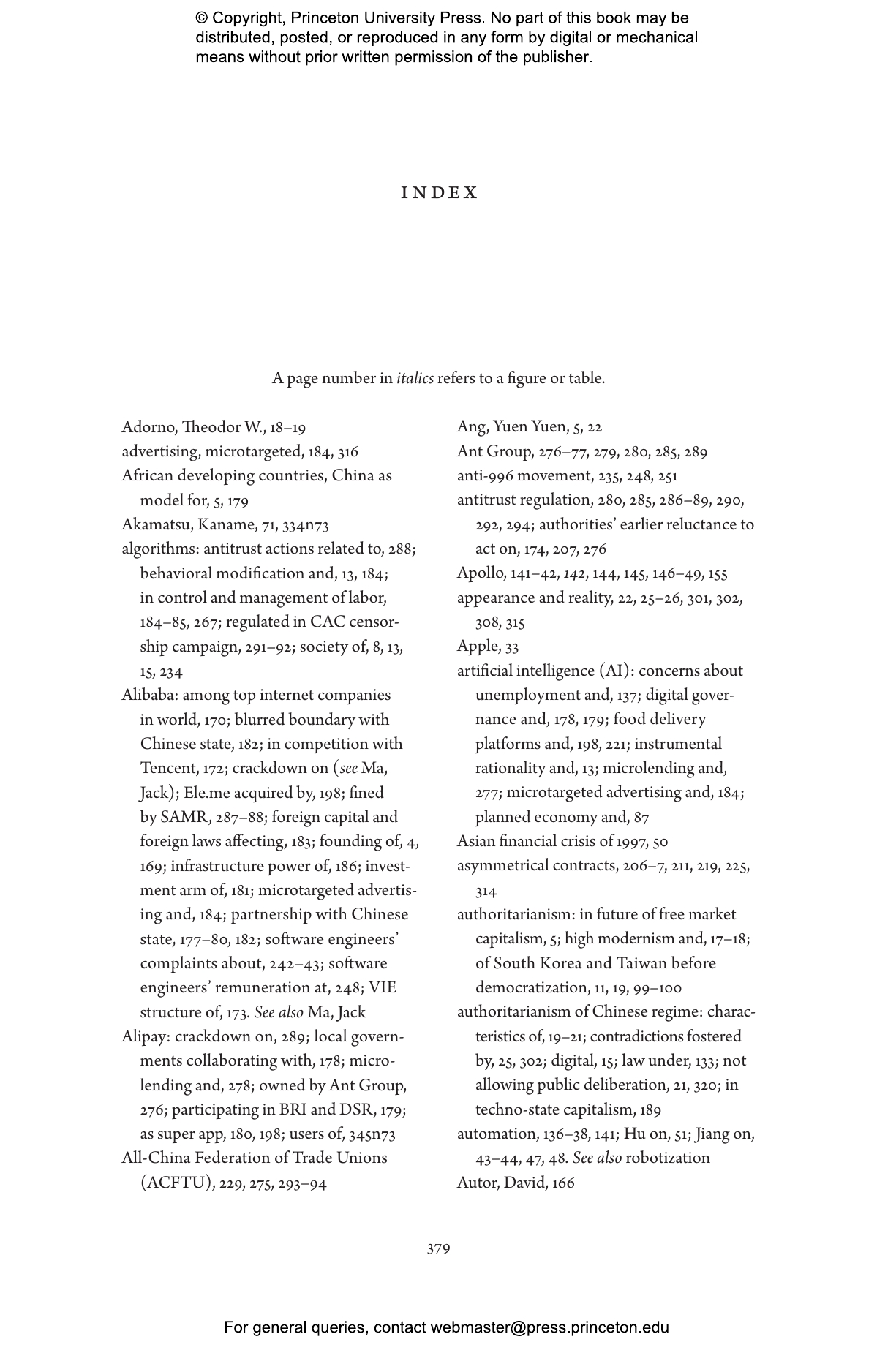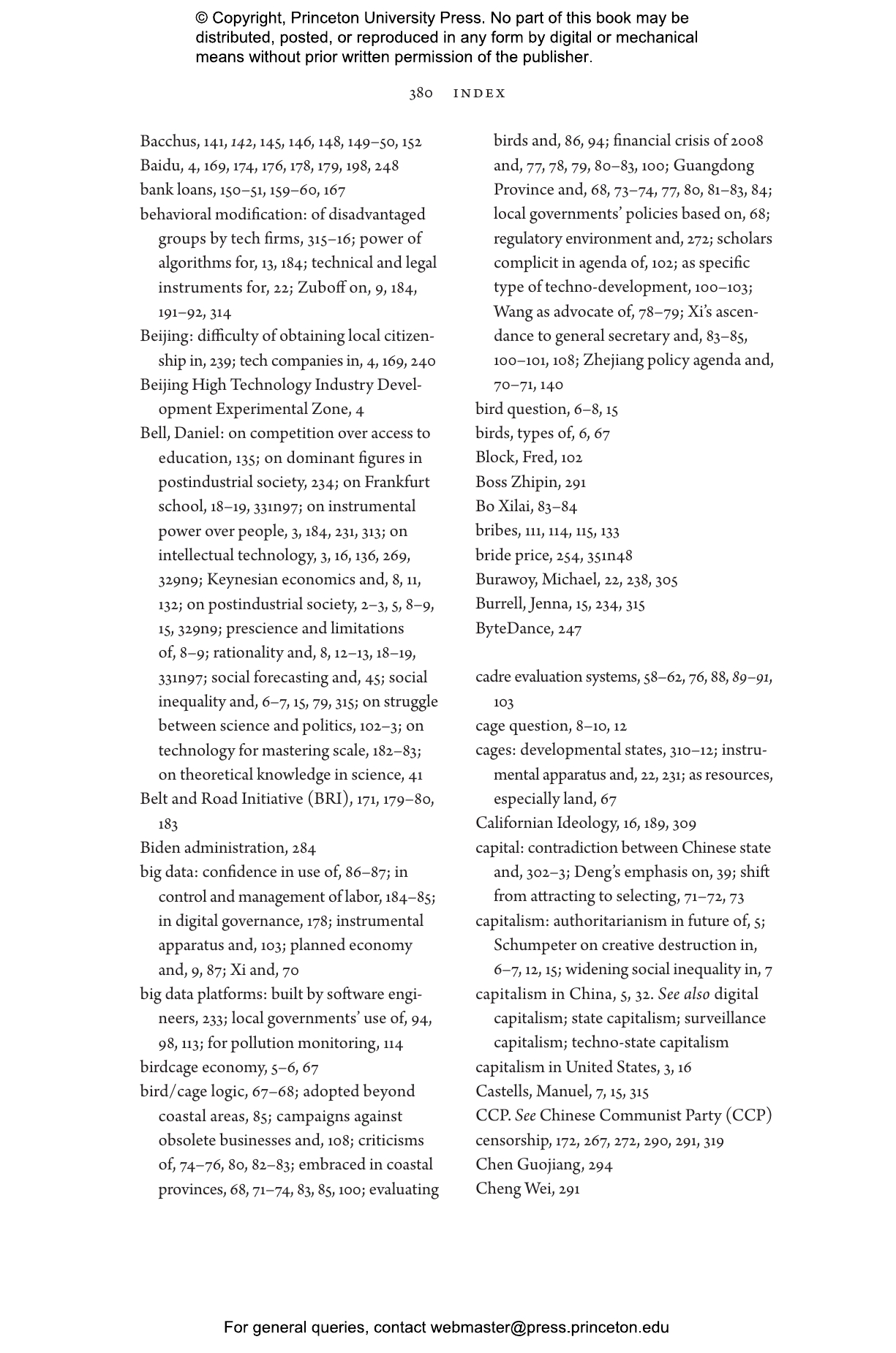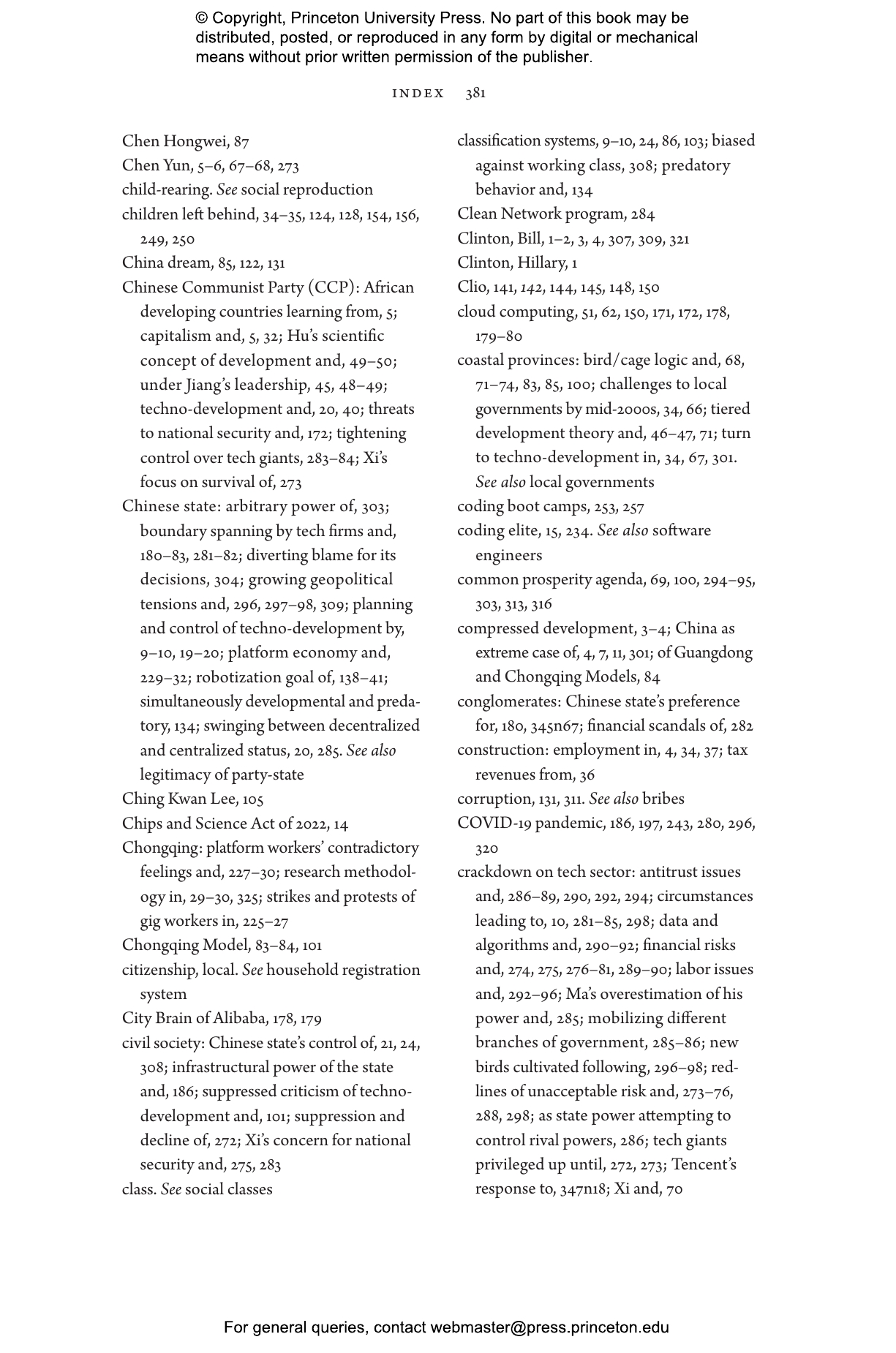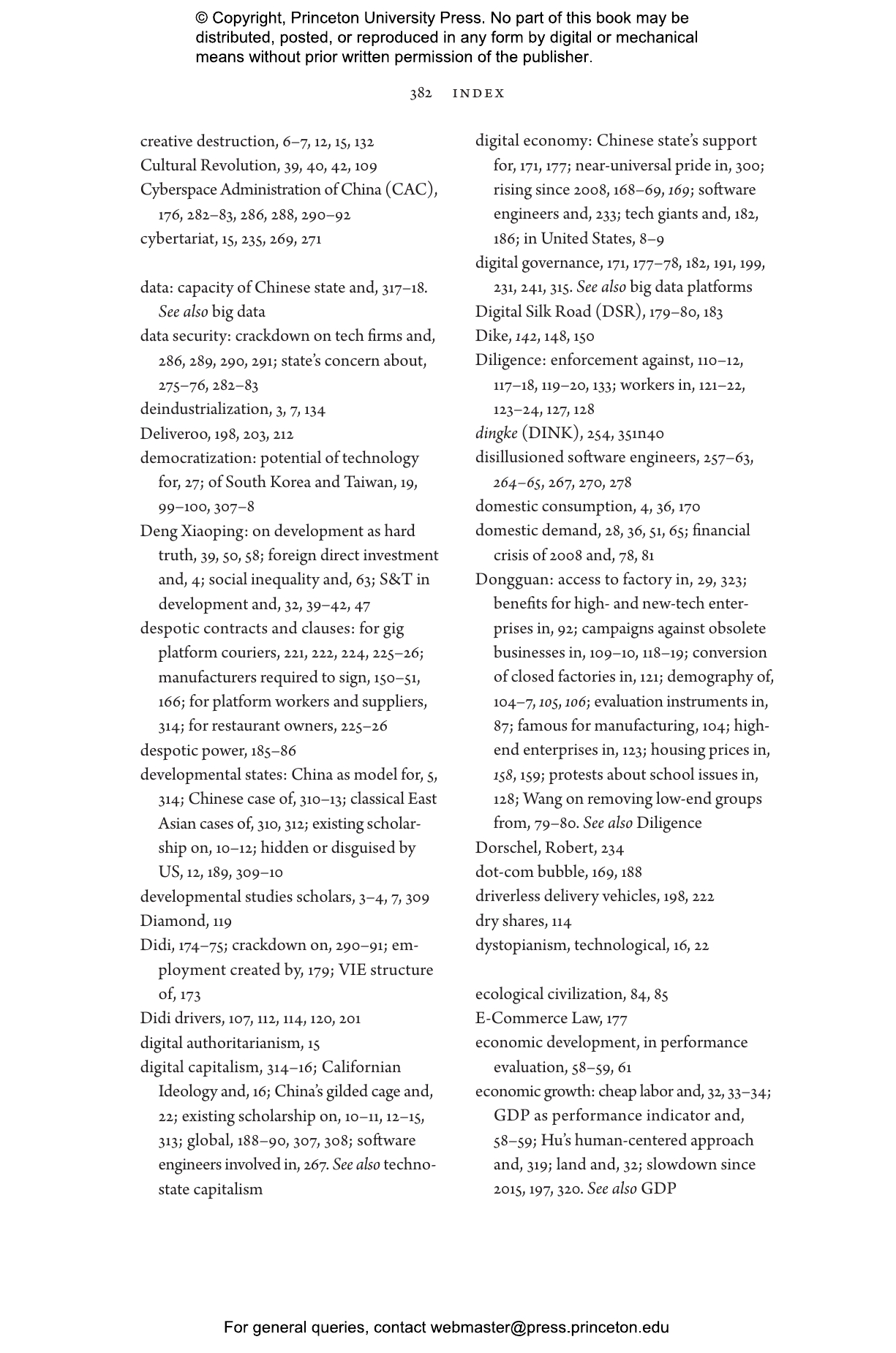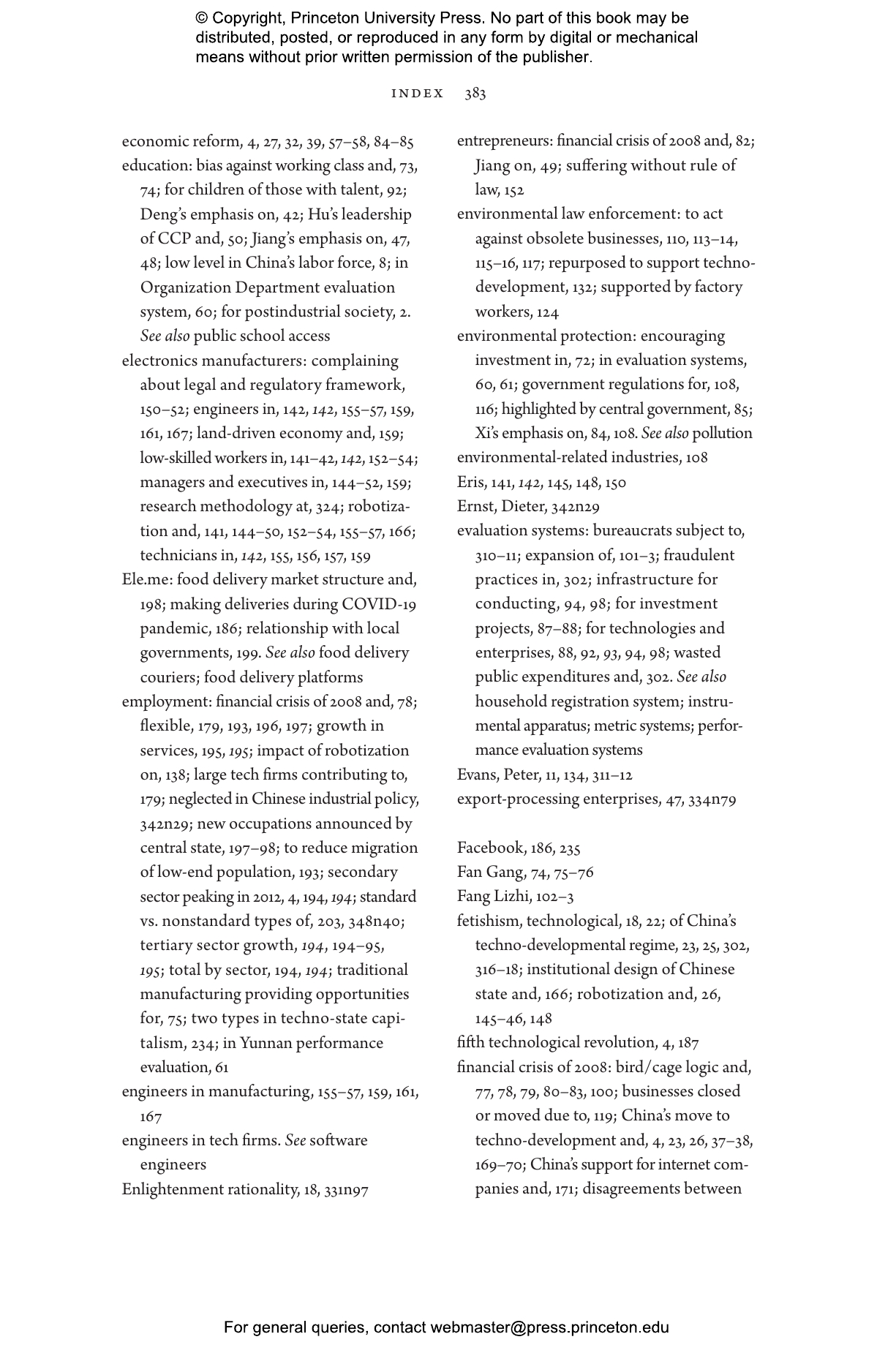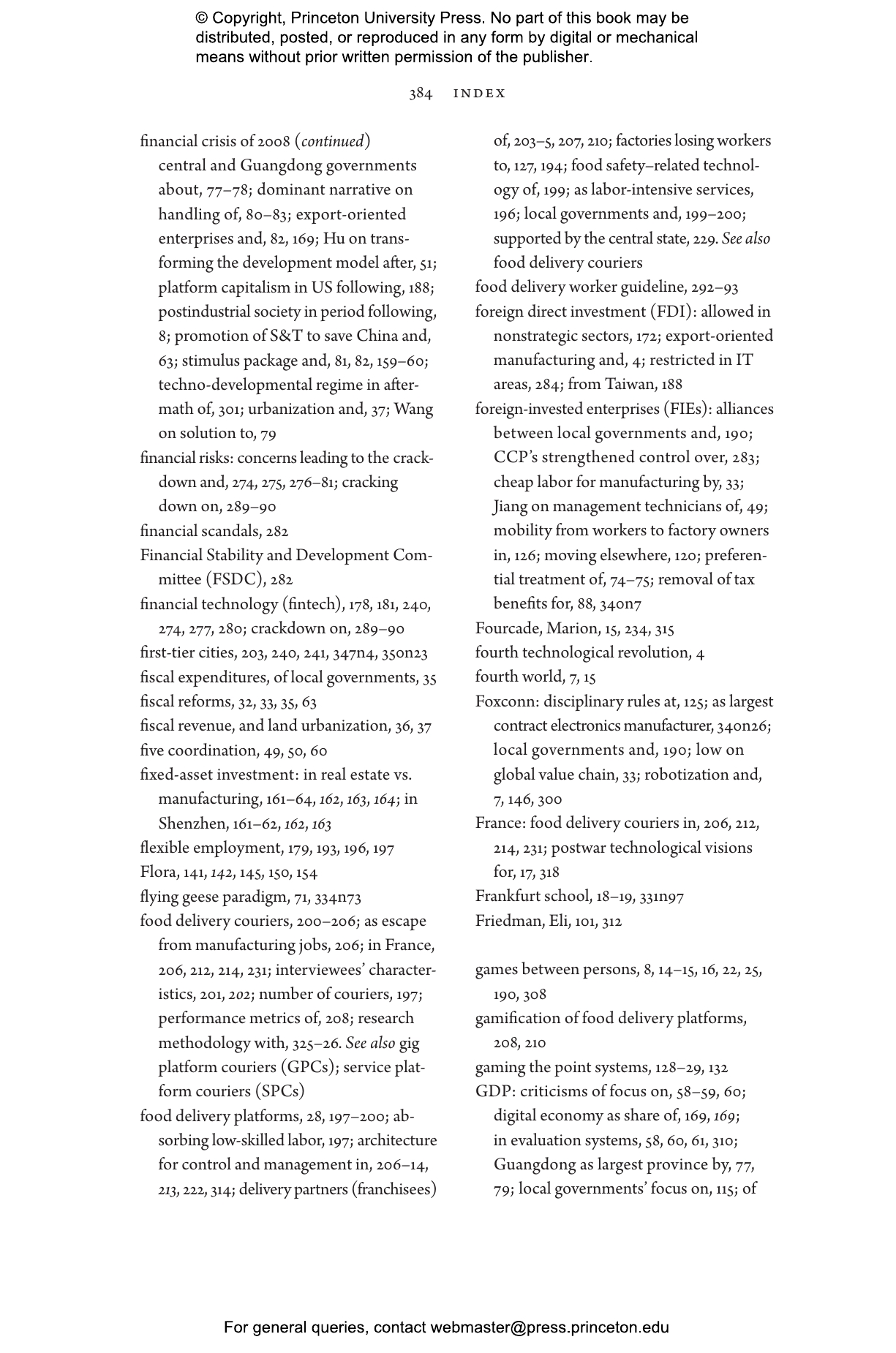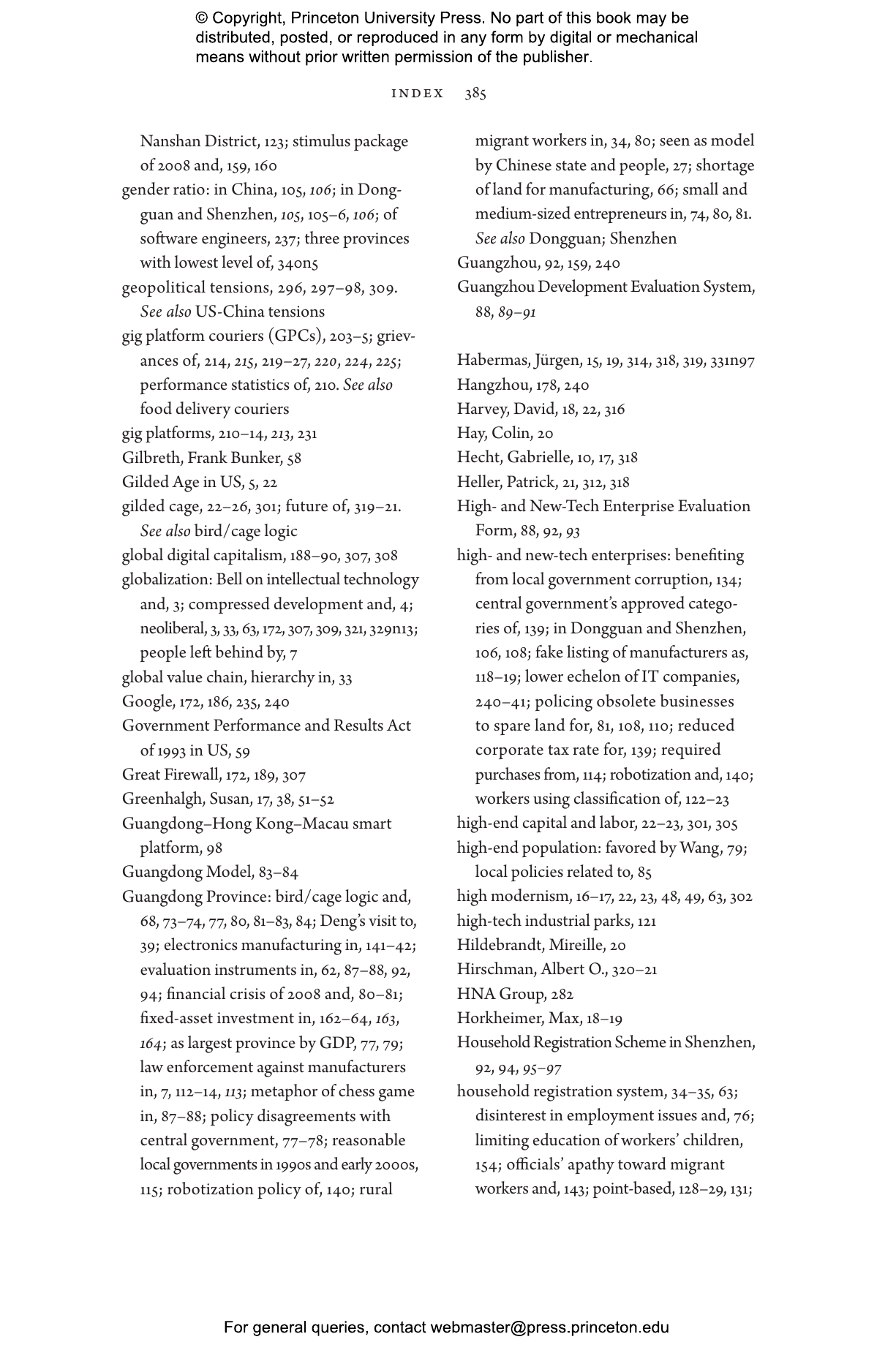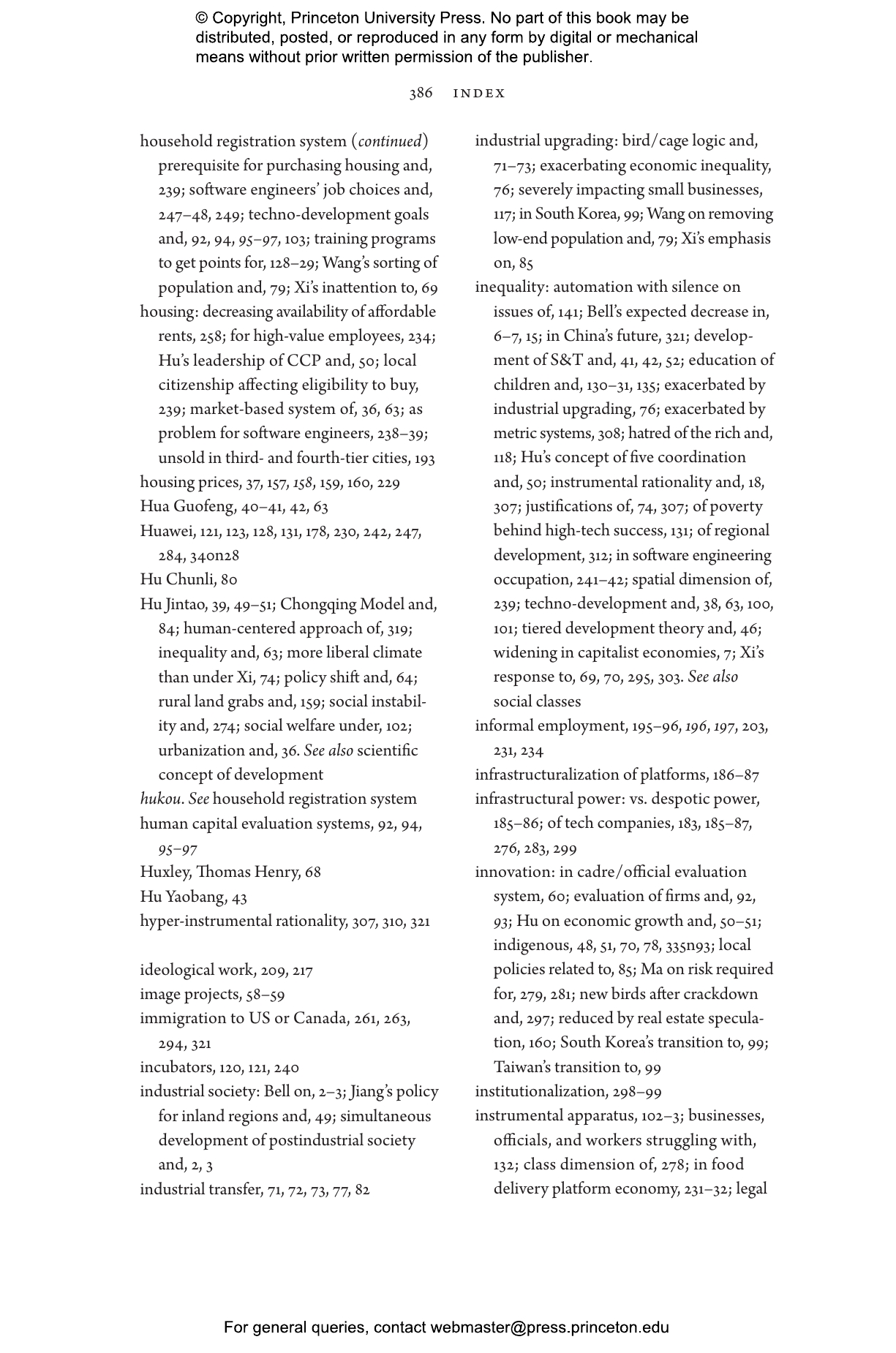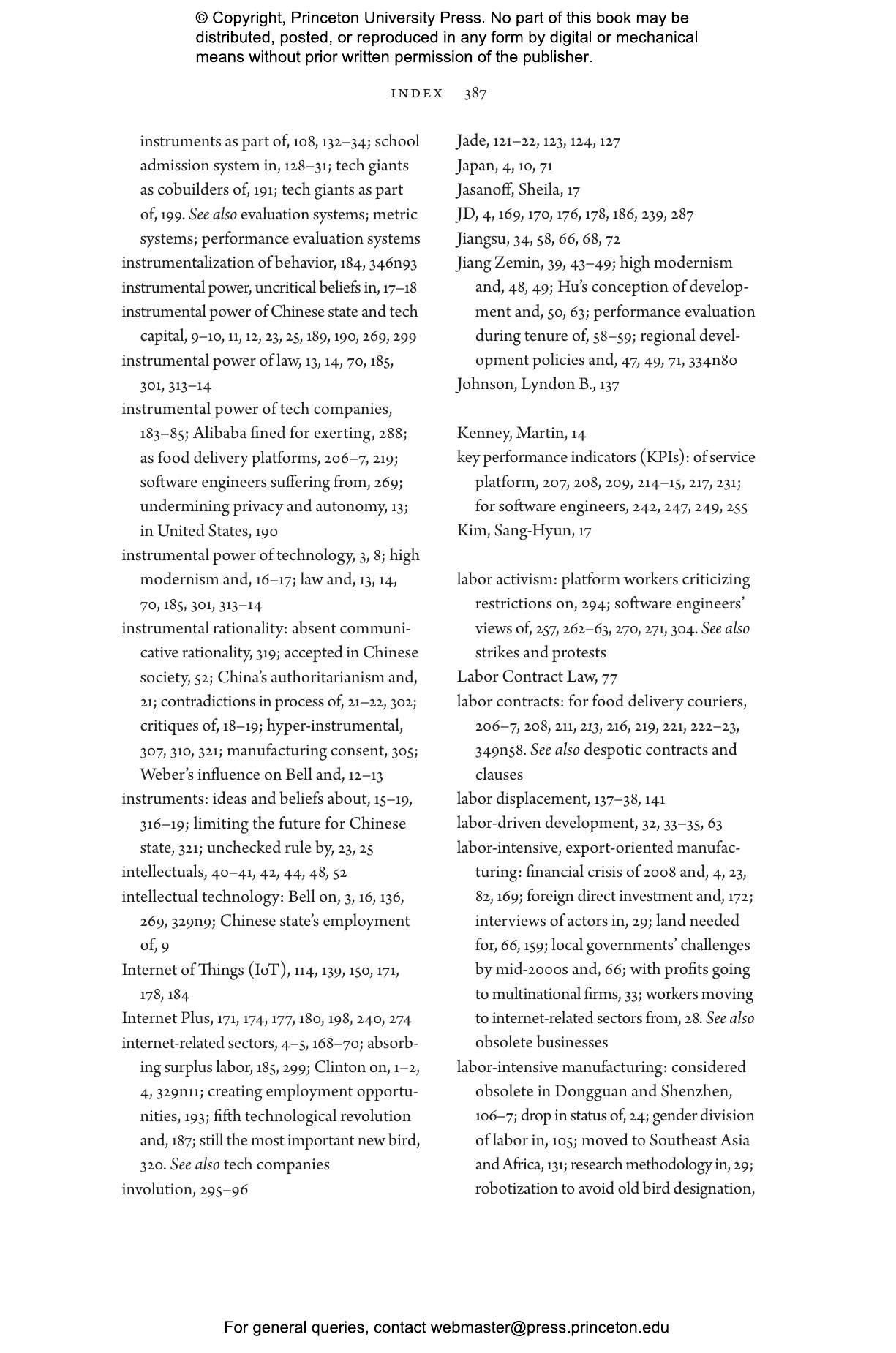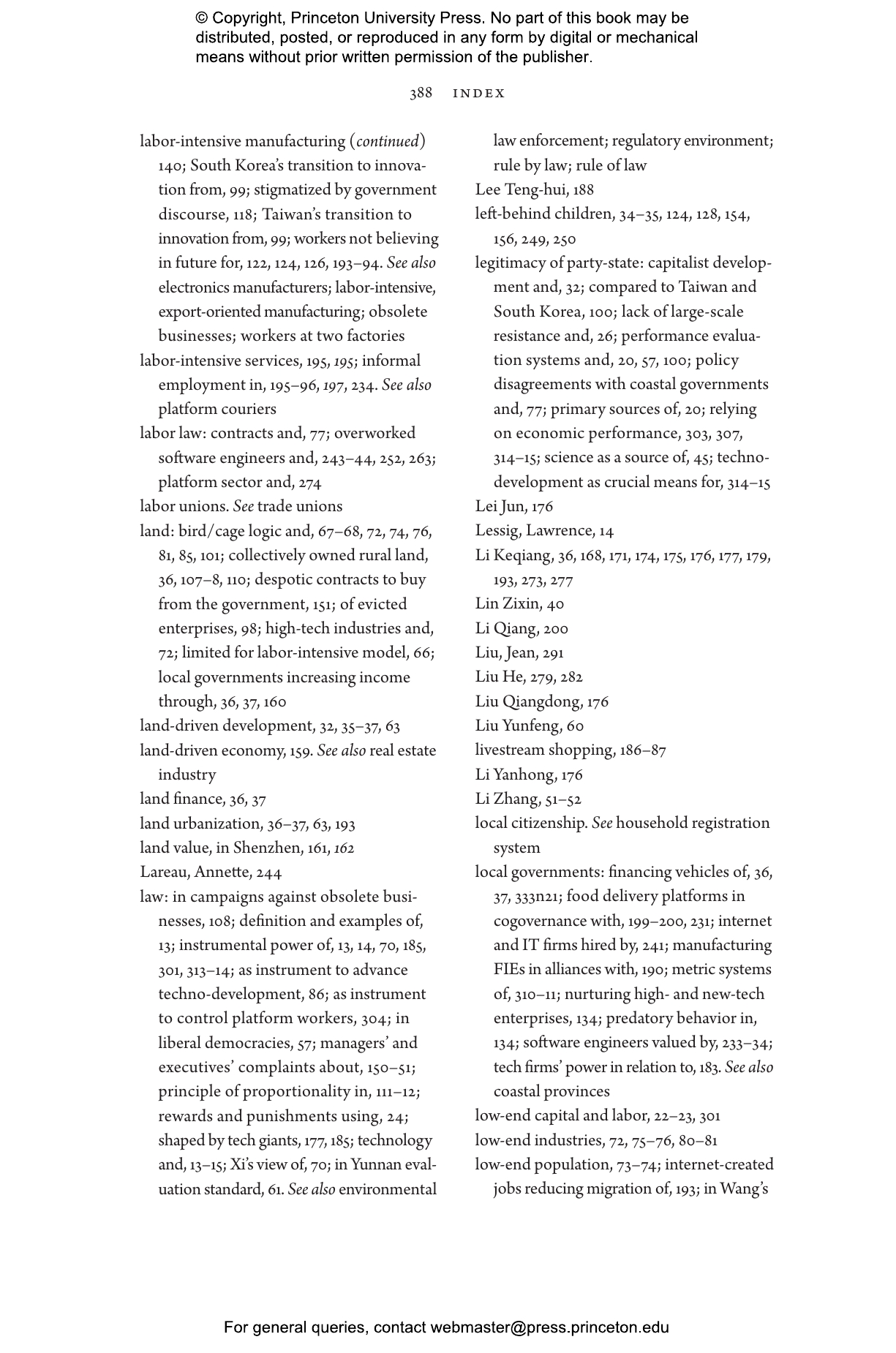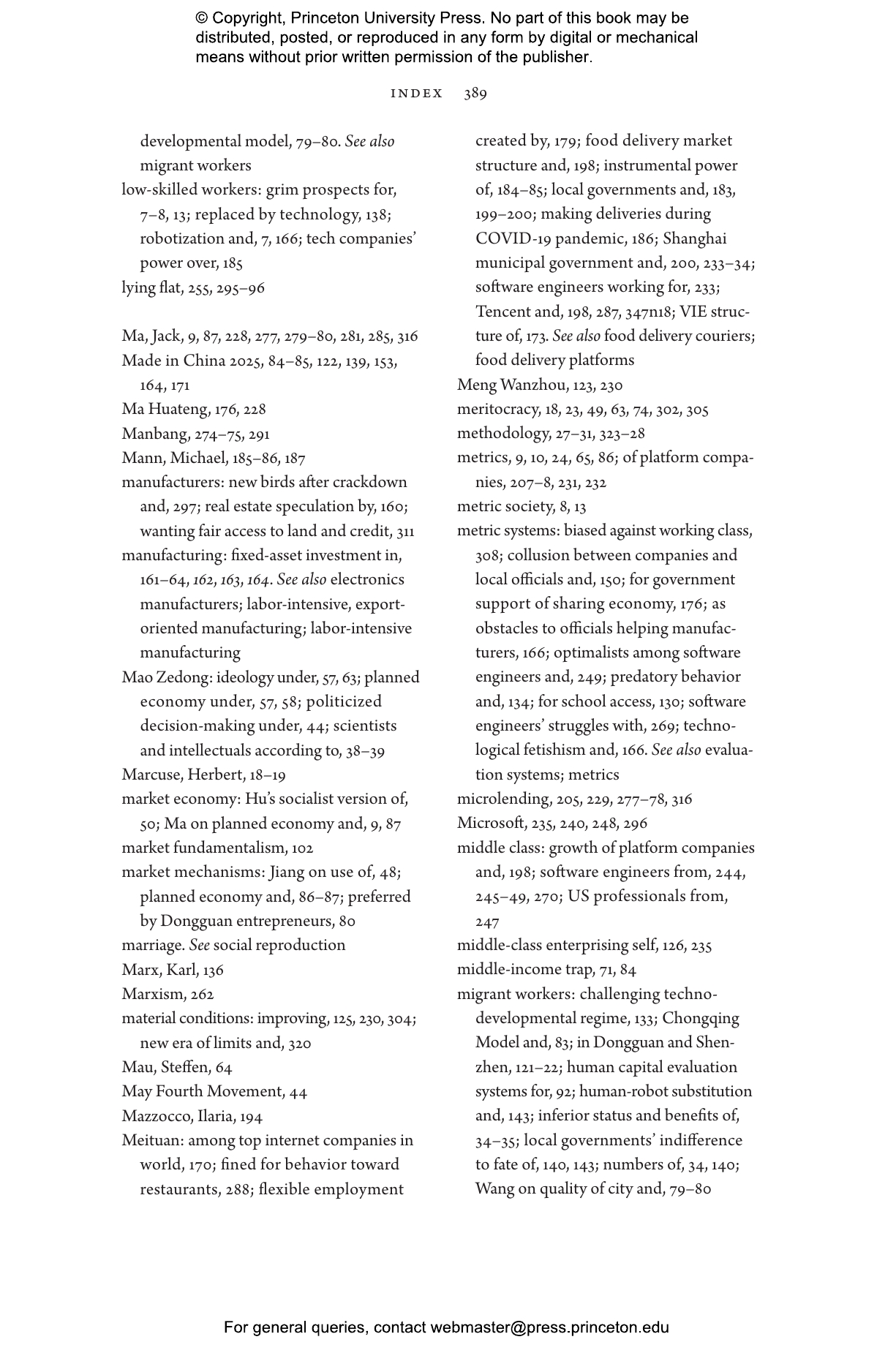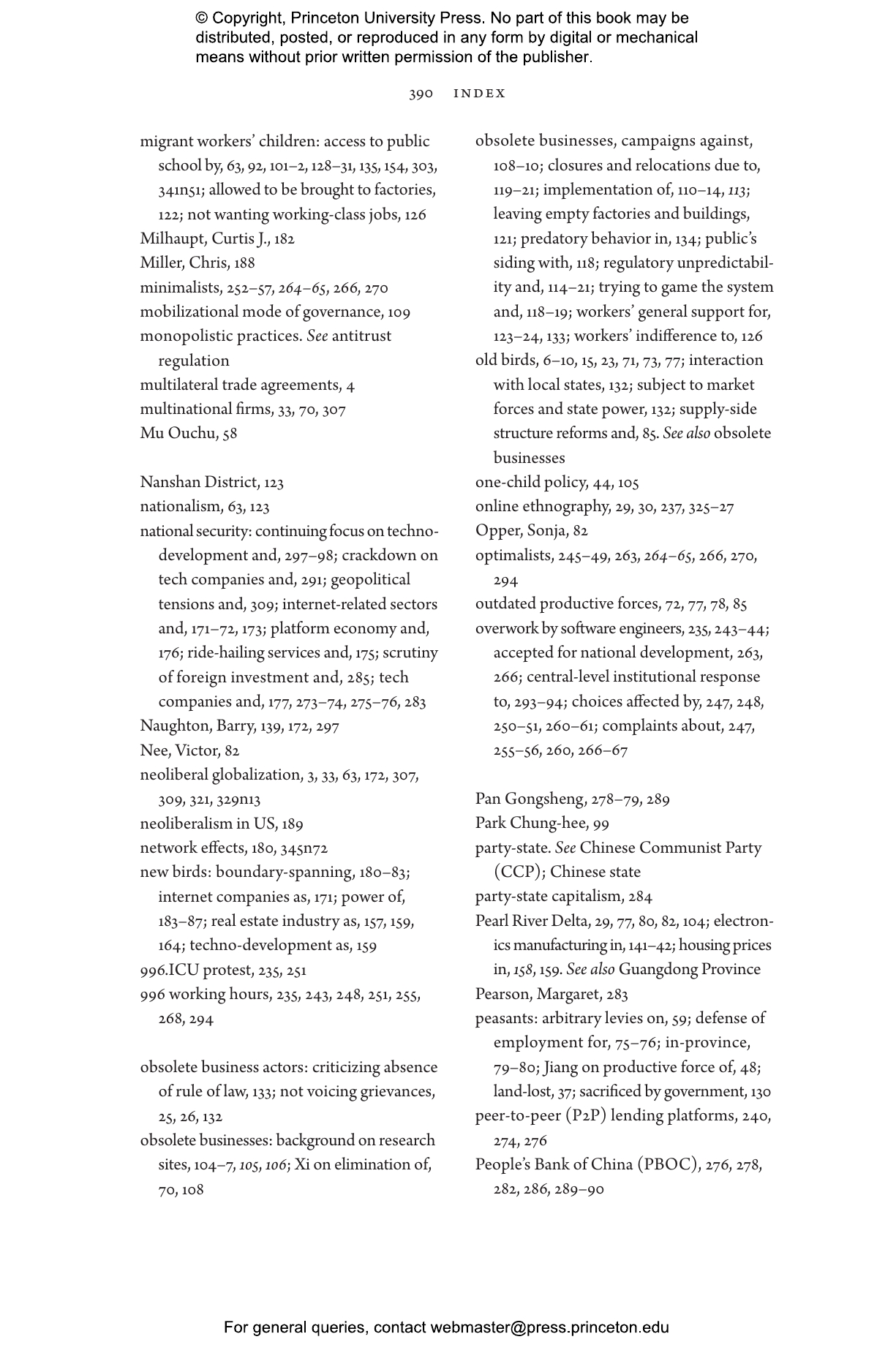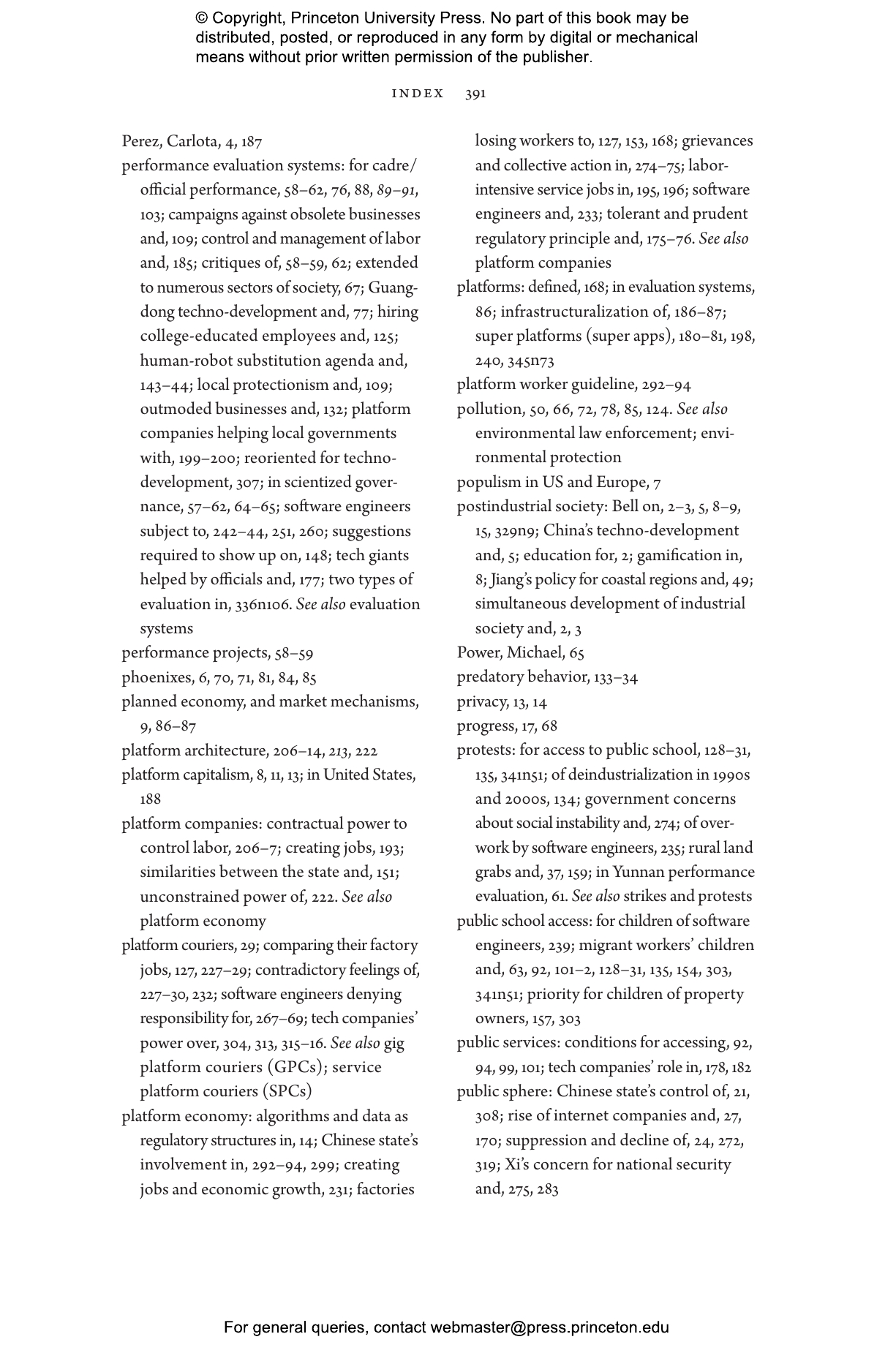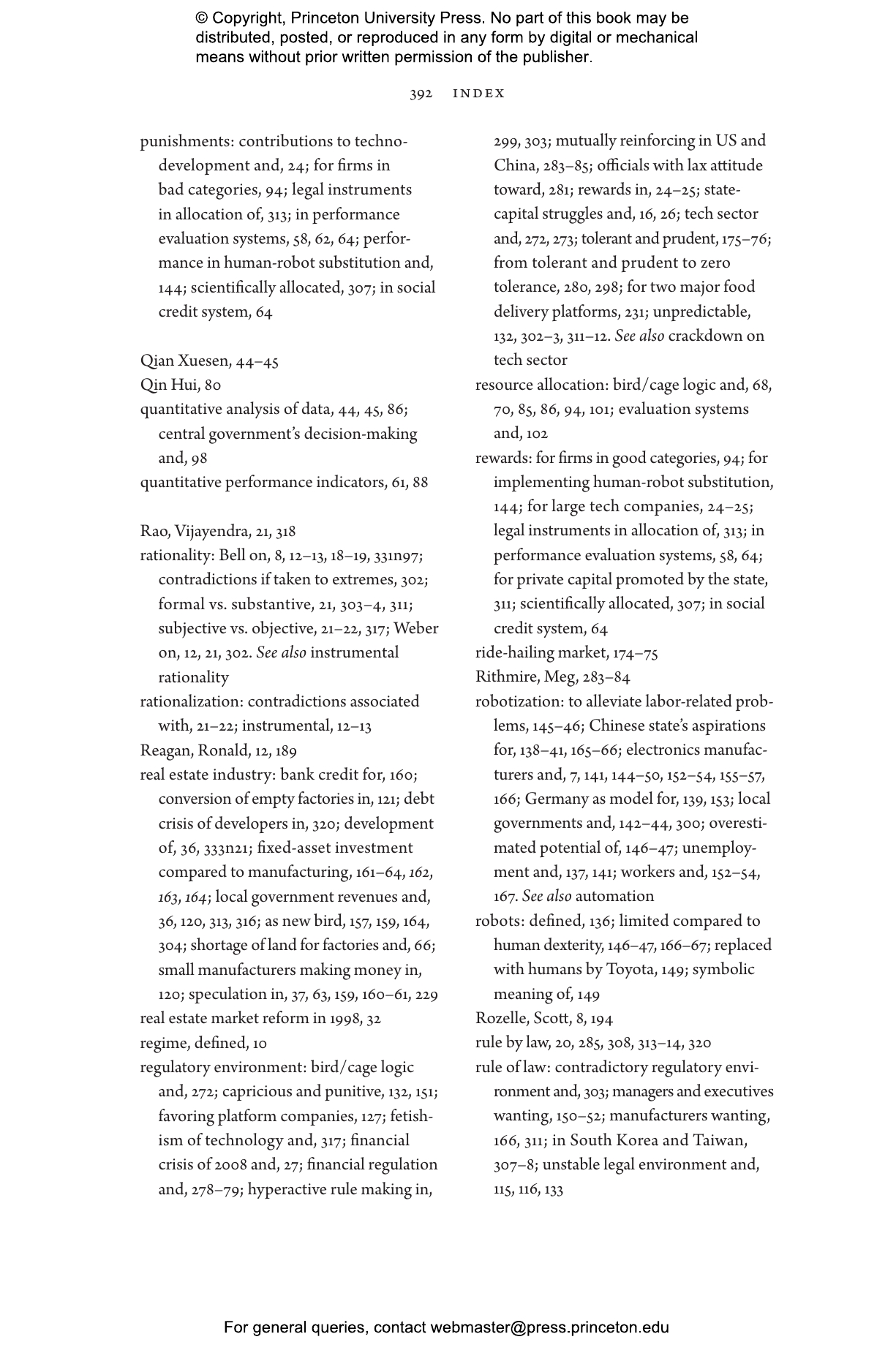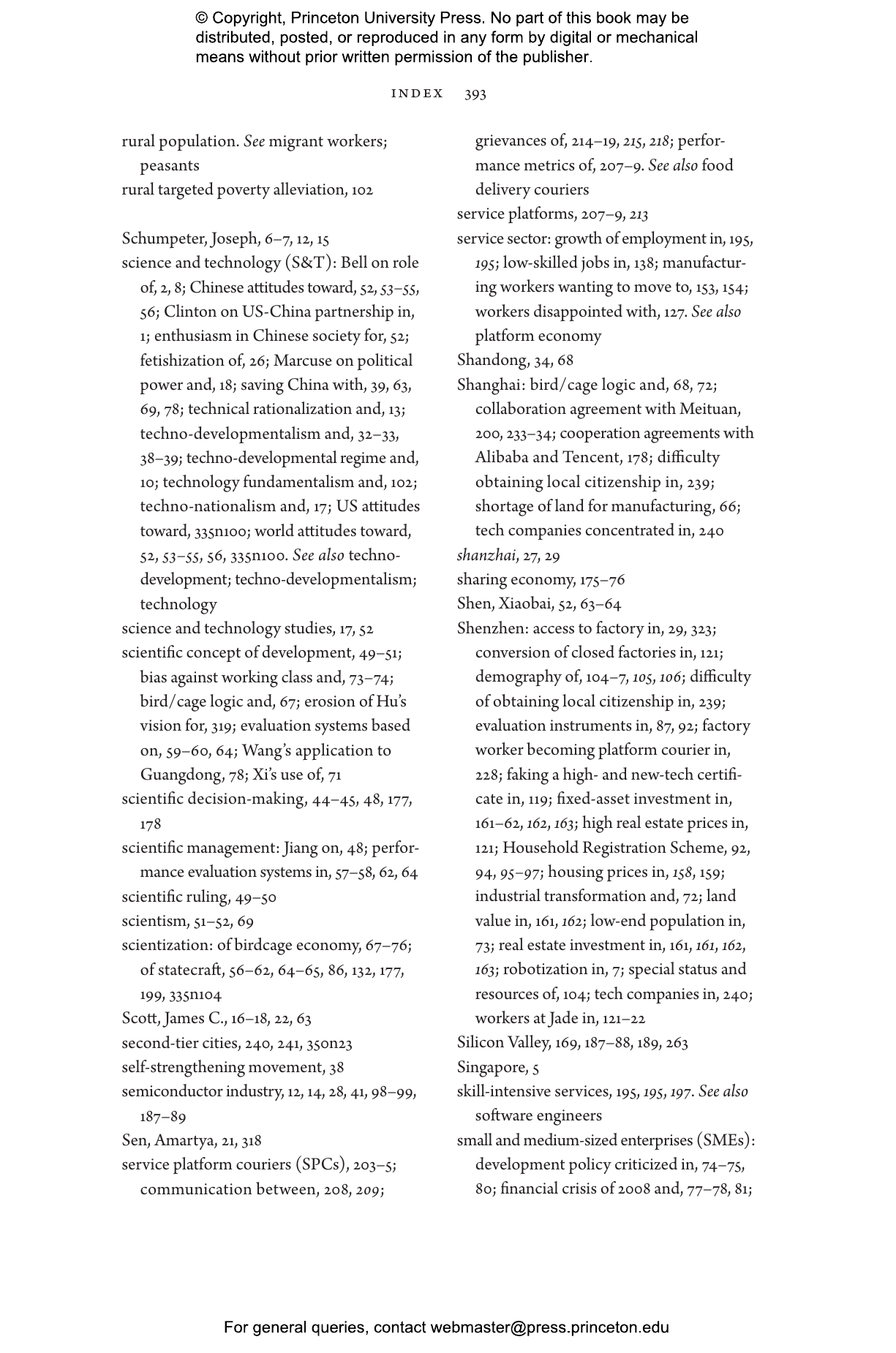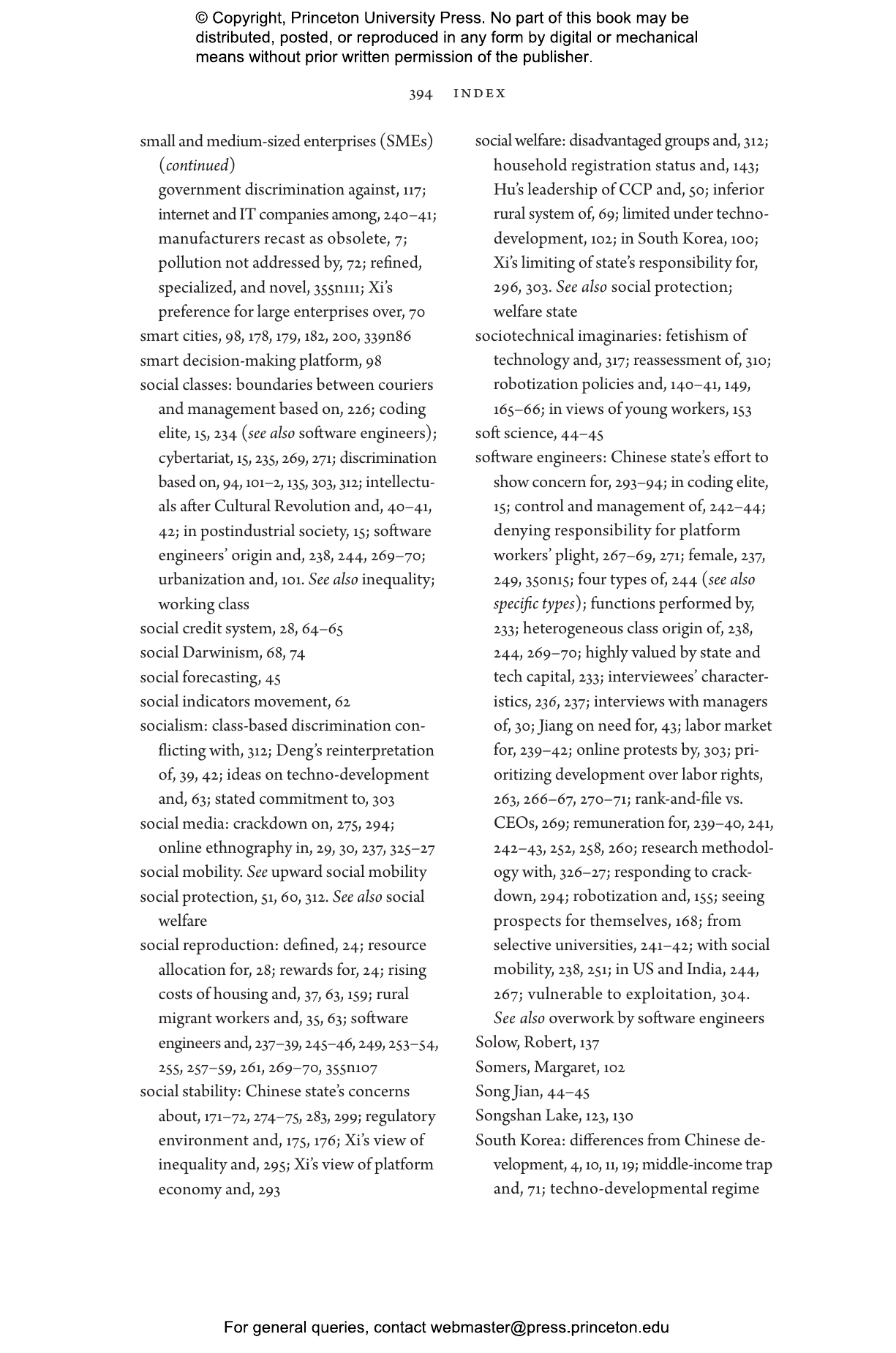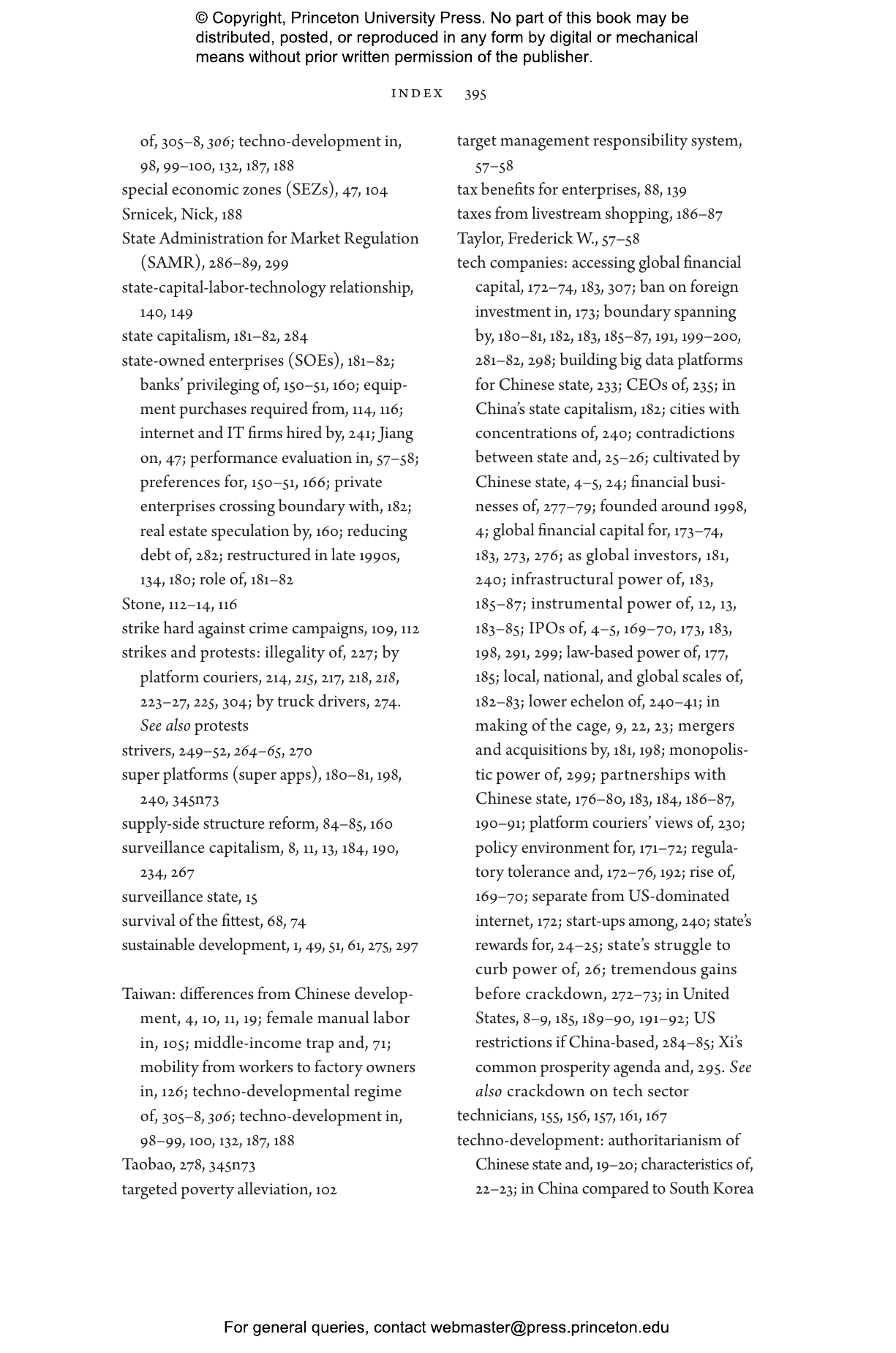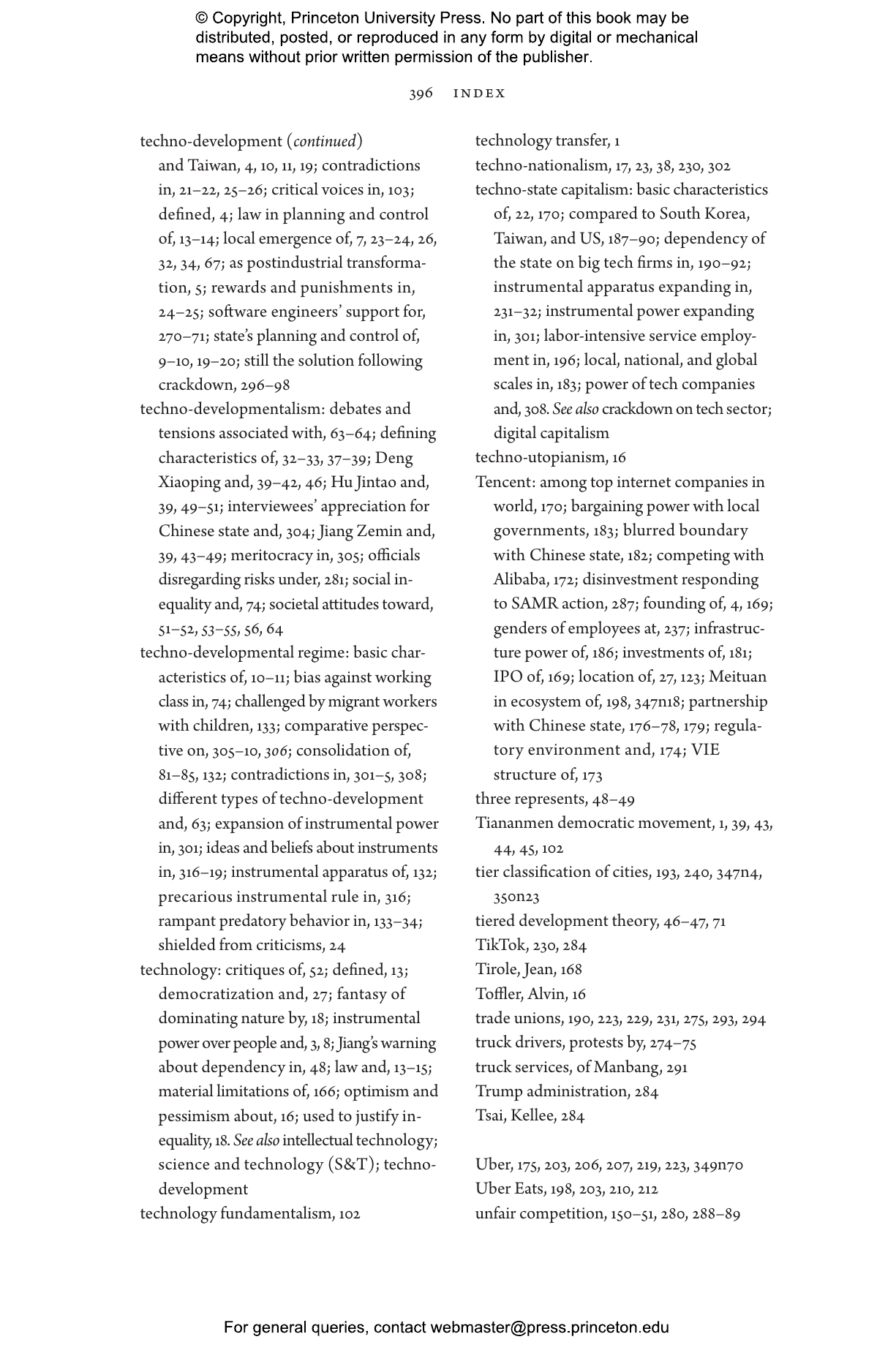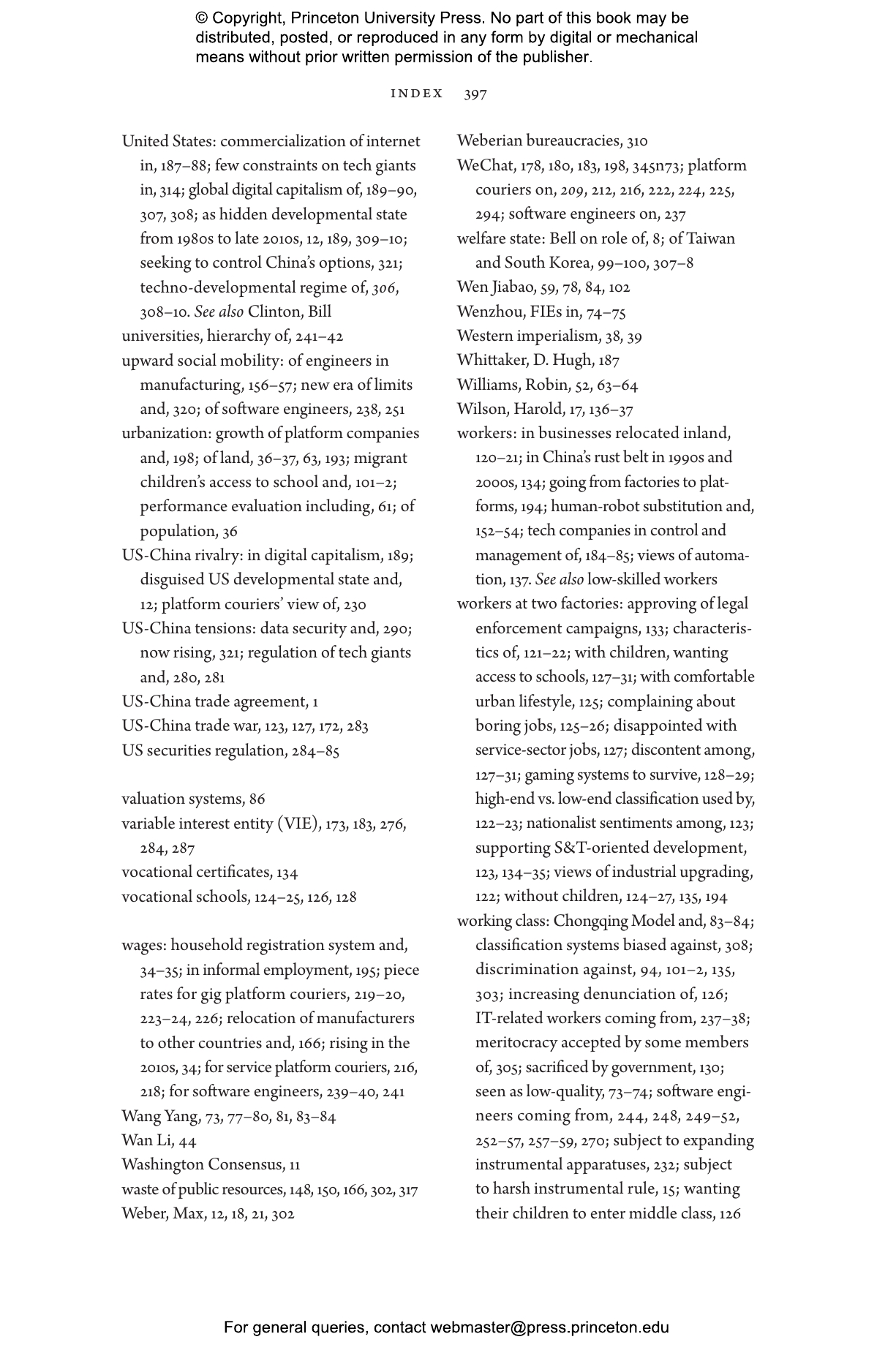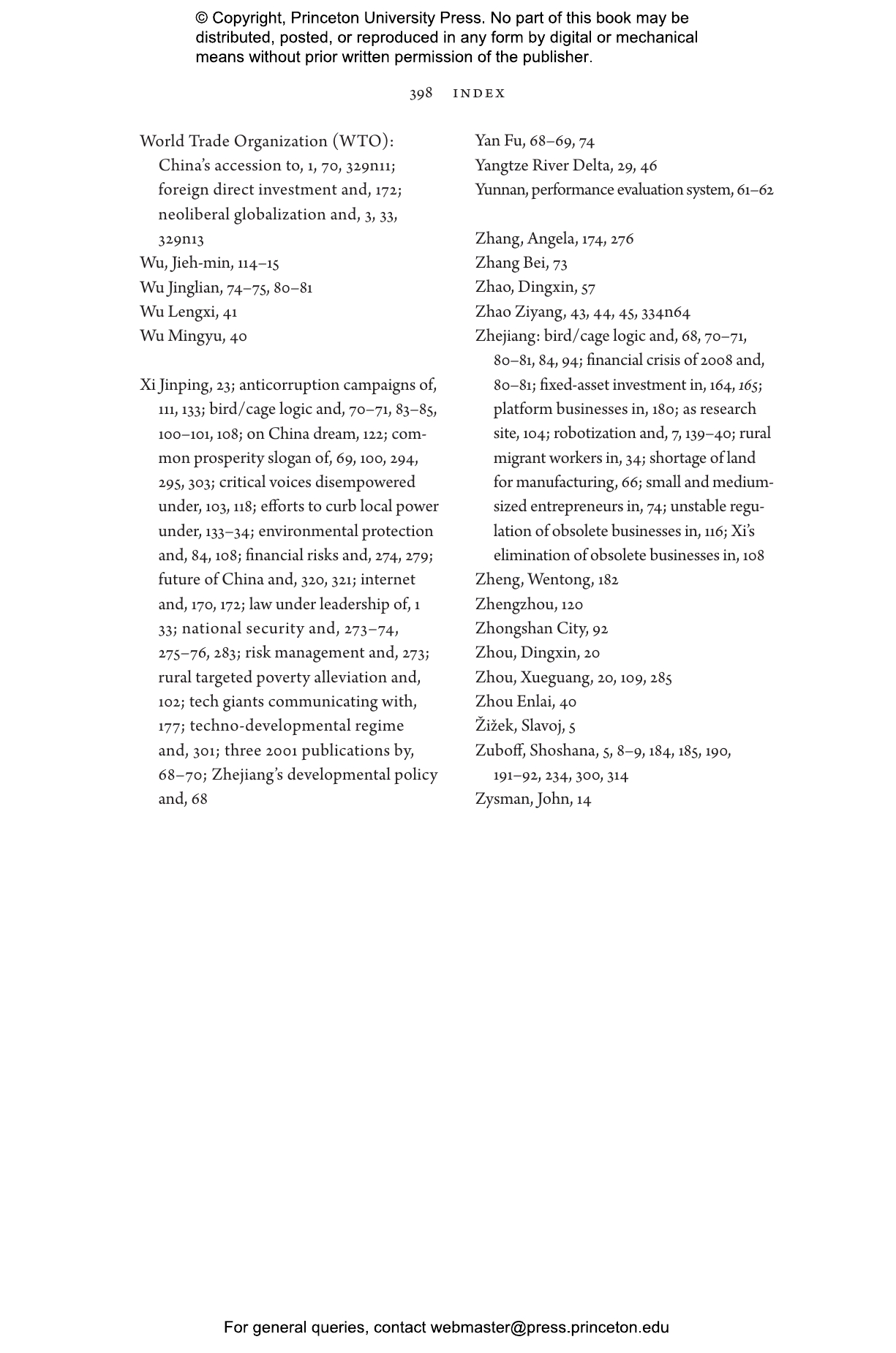Since the mid-2000s, the Chinese state has increasingly shifted away from labor-intensive, export-oriented manufacturing to a process of socioeconomic development centered on science and technology. Ya-Wen Lei traces the contours of this techno-developmental regime and its resulting form of techno-state capitalism, telling the stories of those whose lives have been transformed—for better and worse—by China’s rapid rise to economic and technological dominance.
Drawing on groundbreaking fieldwork and a wealth of in-depth interviews with managers, business owners, workers, software engineers, and local government officials, Lei describes the vastly unequal values assigned to economic sectors deemed “high-end” versus “low-end,” and the massive expansion of technical and legal instruments used to measure and control workers and capital. She shows how China’s rise has been uniquely shaped by its time-compressed development, the complex relationship between the nation’s authoritarian state and its increasingly powerful but unruly tech companies, and an ideology that fuses nationalism with high modernism, technological fetishism, and meritocracy.
Some have compared China’s extraordinary transformation to America’s Gilded Age. This provocative book reveals how it is more like a gilded cage, one in which the Chinese state and tech capital are producing rising inequality and new forms of social exclusion.
Awards and Recognition
- Winner of the Robert K. Merton Book Award, SKAT Section of the American Sociological Association
- Winner of the Bronze Medal in International Business / Globalization, Axiom Business Book Awards
- Honorable Mention for the Max Weber Book Award, Organizations, Occupations, and Work section of the American Sociological Association
- Winner of the Asia/Transnational Book Award, American Sociological Association
- Winner of the Best Book Award, Communication, Information Technology, and Media Section of the American Sociological Association
Ya-Wen Lei is professor of sociology at Harvard University, where she is affiliated with the Fairbank Center for Chinese Studies and the Weatherhead Center for International Affairs. She is the author of The Contentious Public Sphere: Law, Media, and Authoritarian Rule in China (Princeton).
"[A] good guidebook for China’s holistic development, not just within the last two decades but also in the decades to come"—George Hong Jiang, London School of Economics
"Lei’s important book works well in showing what happens when a major nation’s raison d’être becomes science and technology rather than people’s welfare. . . . Excellent and well-written."—James Flowers, H-Net Reviews
"Provocative."—Choice
"An important, sophisticated book. . . . The Gilded Cage is an essential read for those seeking to understand the drivers of China’s technology model and how the CCP hopes to leverage it to maintain their economic growth and reinforce the Party’s political legitimacy during an accelerating global innovation competition with the United States."—Brandon Kirk Williams, Journal of Cyber Policy
“Wondering why Montana is banning TikTok, what happened to Jack Ma, or how platform laborers fare in Beijing? Lei’s magisterial analysis of how the Chinese development model has turned away from labor-intensive manufacturing to embrace tech is a definitive account. Based on an impressive volume of interviews, data and archival research, as well as careful engagement with the literature, The Gilded Cage shows the logic as well as the dark side of Chinese development. A major contribution to the field and a must-read.”—Juliet Schor, Boston College
“The Gilded Cage is a compelling and masterfully researched account of the Chinese state’s embrace of science and technology as a path of development, the impact of the resulting policies, and their effect on a wide range of occupational groups. This is a theoretically and intellectually powerful work that serves as a cautionary warning about the dangers of fetishizing science and technology and of valuing instruments over humans.”—Patrick Heller, Brown University
“A significant contribution. Lei traces how China saw the rise of a techno-developmental regime in response to the 2008 financial crisis, and how this new economy has created anxiety and instability among workers, who toil long hours under draconian control by companies employing new digital technologies of surveillance.”—Ho-fung Hung, Johns Hopkins University
